






















































































































Correspondence:
The Editor, PO Box 212, West Perth WA 6872 editor@sstuwa.org.au | Ph: 9210 6000
Member Assist:
Ph: 9210 6060 memberassist@sstuwa.org.au Print post publication 100004470 | $4.95 ABN: 544 780 946 35
Authorised by Mary Franklyn, General Secretary, The State School Teachers’ Union of W.A. (Inc.) 1 West Street, West Perth WA. Printed by Vanguard Press, 26 John Street, Northbridge WA. January 2023.
Cover: Read more about the bespoke artwork created for the SSTUWA at sstuwa.org.au/connections
To access the digital copy of Western Teacher, visit: sstuwa.org.au/westernteacher
Features
Meet your new leadership team
Our climate emergency is an education emergency
How to bust myths about school funding....................................................................................12
A regional school with national acclaim 19 The cost of public-private partnerships in education 20 Truth telling in the Australian education system 22

From the President 4 From the Vice President 6
the Senior Vice President
General
Advertisements in Western Teacher are the responsibility of advertisers. While Western Teacher makes reasonable efforts to ensure that no misleading claims are made by advertisers, responsibility is not accepted by The State School Teachers’ Union of W.A. (Inc.) for statements made or the failure of any product or service to give satisfaction. Inclusion of a product or service should not be construed as an endorsement or recommendation by The State School Teachers’ Union of W.A. (Inc.)
is the official publication of The State School Teachers’ Union of W.A. (Inc.)
This design was created for the SSTUWA by Tyrown Waigana, a Wandandi Noongar and Ait Koedal artist/designer and former WA public school student. Read more about the artist and the artwork at sstuwa.org.au/connections

Welcome to 2023 – a year of immense challenges for the State School Teachers’ Union of Western Australia and of great opportunity for public education.
In this, the SSTUWA’s 125th anniversary year, it is an incredible honour to succeed Pat Byrne as president of the SSTUWA; though I will admit it is also a little disconcerting to follow such an inspiring and dedicated servant to public educators and public education.
Pat’s contribution at state, national and international level can never be underestimated. We thank Pat and hope we can achieve half as much.
I say “we” because replacing Pat is not a one-person operation – it takes a talented team. I am therefore delighted to have Natalie Blewett, Sharmila Nagar and Mary Franklyn to work alongside.
As general secretary, Mary has positioned this union more strongly than ever before in terms of growth and financial stability.
Natalie brings to the role of senior vice president a magnificent record in developing our membership at both new educator and other levels.
Sharmila has established the foundations for an environmental, social and governance approach that will help the SSTUWA deliver its services in a manner fitting for the times and we will be looking into alternative models of member engagement.
These senior officers are guided by an executive that combines rich experience with dynamic people who are the next generation of leaders for public education.
Among many other opportunities looming for the sector, three stand out for me.
Later in 2023 the negotiations will commence for new general agreements (GA) for both the schools and TAFE sectors.
Your union will seek to build on the gains made in the 2021 agreements, concluded just last year. The key factor was giving the $1,000 salary cap the boot.
The state government’s desperate plans to fix the state’s teacher shortage will not address the underlying issues in the public education system, according to the SSTUWA.
The union said the government’s plan to send under qualified teachers into shortstaffed schools (announced late last year) was a short-sighted move which had the potential to cause more harm than good.
SSTUWA President Matt Jarman said the union had been warning the government for years about the looming teacher shortage, but its concerns were ignored.

“Now we’re in a desperate situation where the government is offering random cash payments to teachers instead of taking a strategic approach
to address the issues that led to the shortage in the first place,” he said.
“If the government was genuine about fixing the public education system, it would do something to address the workload issues teachers are facing which have forced many of them to leave.
“More also needs to be done to address violence and other abuse in schools which has made teaching a very difficult job.
“The government also needs to increase salaries across the board to retain current staff and make teaching a more attractive career option for those going into university.”
Mr Jarman said a number of other
factors had also contributed to the teacher shortage, including the failure to provide the minimum funding for schools recommended by the Gonski report, constant changes to curriculum and testing regimes and false expectations created by the Independent Public School (IPS) model.
The union said rural and regional public education had been undermined during the implementation of the IPS model, and cash payments to lure teachers to the regions would not work in the long term.
“We need full and properly considered consultation about public education in WA with those who understand the system best – teachers,”
Mr Jarman said.
Through an unprecedented level-up clause, the SSTUWA not only secured initial salary rises for members but ensured any subsequent changes of state government wages policy negotiated with other public service unions flowed onto our members (and other unions benefited too).
In addition, a series of important gains around core issues were secured. Once the new process gets underway, I urge you to play your part in helping us formulate our negotiating position.
Our Public Sector Alliance proved crucial in shifting the government on wages policy and we will be seeking a continuation of that cooperation.
During the next few months the new joint funding agreement between federal and state governments will be thrashed out. This is an absolute priority for the SSTUWA.
At the census date of 5 August 2022 there were a total of 476,110 students being taught in WA schools.
Of those 316,834 – 66.6 per cent – were being educated in public schools.
How can it be then that public schools get less than the minimum funding level set by Gonski while private schools get more than 100 per cent of their entitlements?
The system is broken and needs fixing.
This is a situation that flies in the face of Labor’s supposed commitment to public education. It is essential to work towards WA getting the 105 per cent of the Schooling Resource Standard that the Gonski review set as a minimum.
Without full and proper minimum funding levels being met, WA will not be giving its children the best possible education opportunities.
Straightforward funding commitments, without accounting tricks, are what is required.
Jane Caro tackles some of the myths around education funding from page 15 of this issue. I urge you to read the article and share it with everyone you know – educators, parents and your local MPs!
Contributing to the SSTUWA’s efforts on both GA negotiations and funding discussions will be the Lawrence review into public education.
We need to ensure that public education is at the forefront of community and political discussions in Western Australia. The Lawrence review will assist in that process, presenting the problems in a clear manner and offering practical solutions.
I urge all of our members to make their own submissions, focusing on real problems and real solutions.
It is time to listen to teachers about how to improve educational outcomes, not impose think-tank solutions based on ideology or profit seeking.
The recent rash of quick fixes for the teacher shortage shows how important consultation is to deliver workable long-term solutions. (For more see the story on previous page.)
We have a challenging year ahead, but we wouldn’t have it any other way.
Don’t stand on the sidelines, be part of the solution. If you are already a member, join in.
If you are not a member, join up and then join in.
The State School Teachers’ Union of Western Australia welcomed the announcement of a new Education Minister in December’s cabinet reshuffle, with the division into separate ministerial portfolios of early childhood education and training suggesting the state government is giving education a higher priority.
Then SSTUWA President Pat Byrne said the union looked forward to working constructively with new Education Minister Tony Buti MLA, Simone McGurk MLA, who is taking on the training portfolio and Sabine Winton MLA who will be responsible for the new portfolio of early childhood education.
“Early childhood learning is absolutely vital and this focus on the subject is welcomed. Training, especially through the TAFE network is crucial to addressing the state’s skill shortages and deserves significant attention,” she said.
“It is very encouraging to see a Minister of Education appointed who has teaching experience and who went through the public education system and appreciates its value.
“In his maiden speech to parliament Minister Buti recognised and acknowledged many of the issues facing the teaching profession. We find common ground with his declaration in that speech that ‘We need to better support our teachers and listen to their concerns as they are the classroom experts. We need to raise the societal standing of the teaching profession. This requires imaginative thinking and greater funding’ and ‘I cannot overemphasise the need to better support teachers and their assistants.’”
Ms Byrne said the SSTUWA looked forward to working with Ministers Buti, McGurk and Winton to address the wide range of challenges facing all three education sectors.
The SSTUWA also acknowledged the work done by outgoing Education Minister, Sue Ellery MLC.
“Minister Ellery introduced significant improvements to the way schools address the problem of violence,” Ms Byrne said.
“Minister Ellery also oversaw major changes to access to TAFE courses that had long been urged by the SSTUWA through its pro-TAFE campaigns.
“With major change occurring in the education portfolio at both federal and state levels, SSTUWA welcomes the opportunity to work with both tiers of government in the interests of staff and students in public schools.”

Did you know the words you are reading are printed on recyclable paper? We did the maths to ensure we made the paper choice with the smallest environmental footprint for our magazine, using a Perth-based printing company to reduce transportation mileage.
The plastic wrap it came in is degradable, too. That is, of course, unless you’re reading Western Teacher online, readily available on our website and sent via eNews. (If not, check out the e-list section and QR code to the right.)
Here are a few more steps that the SSTUWA is taking to reduce our organisation’s environmental footprint.
You may have noticed over the last few years, union publications that might once have been printed as a book, such as Know Your Rights, have been moved online.
You can find these handy resources by logging into your member account on the SSTUWA website.
By Sharmila Nagar Vice President
We’ve also moved our membership cards online, lessening our plastic waste. Plus, it takes some of the strain off our members’ wallets – as when you join the SSTUWA, you have access to discounts on becoming a card-carrying member with partners like Goodlife Health Clubs, Accor and more. Check out the benefits page on our website for details.
Membership e-cards have been emailed to all members and can be easily added to your phone wallet. If you are struggling to find your e-card, you can access it via the SSTUWA app, or our Membership Team can resend it to you.
Our twice-yearly State Council Conference attracts over 100 delegates from all districts in WA. A decision was made to pivot to an eco-friendlier approach of distributing the agenda and accompanying resources digitally. We noticed some of our delegates preferred this than the option of hard copies, which is still available for those who want it on the day.
Our app puts key industrial and professional information into our members’ pockets. Access tax statements, training information, safety advice and more wherever you are on your phone or tablet and say goodbye to letters and printouts.
Our fleet of SSTUWA cars are transitioning to hybrid models, meaning that our organisers can get from Two Rocks to Falcon while keeping their CO2 down.
We’ve installed solar panels in our West Perth offices. After all, we in WA get to enjoy so much sunshine, all thanks to mother nature, why not thank her back by reducing our fossil fuel consumption?
Since we started putting Western Teacher online in 2016, we’ve encouraged almost 35 per cent of our membership to join our e-list and opt-out of receiving a hard copy of magazine.
If you think you have what it takes to be an e-lister, scan the QR code on this page to opt-out of receiving a physical copy of Western Teacher. We publish the magazine in full on our website and email copies to members who have opted out of the print edition, so you won’t miss a thing!

The actions above are part of an ongoing commitment to identify and apply sustainability practices in all areas of operation, including infrastructure, communications and maintenance.
This is by no means a finished process as we continue our journey towards becoming a more sustainable union and take action on the climate crisis.
Check out the climate action campaign page on our website for educational resources, union policies, feature stories and more information on addressing climate change in Australia and globally: bit.ly/3xUlGEO

As the new school year dawns upon us I am delighted to take up the position of your new SSTUWA senior vice president.
I am excited and looking forward to representing all of our members, and advocating for public education, working alongside the senior officer group which comprises of SSTUWA President Matt Jarman, General Secretary Mary Franklyn and Vice President Sharmila Nagar.
I have been a teacher since 1999 and been involved with the union in capacities such as branch representative and District Council delegate.
I have also been elected as a State Council delegate, Executive Committee member, served as acting Vice President and most recently, Growth Team coordinator.
I am proud to be a teacher in the public school system and I understand the many challenges and complexities that exist
within it. I was educated solely in public schools and the values I learnt throughout my education and those taught to me by my father, a proud SSTUWA member himself, ensures I continue to fight for what is right. It is vital we continue to protect education for the common good.
Every child in this country has the right to access high quality public education, irrespective of background, circumstance, or location. After all, education is a basic, fundamental human right.
Public educators themselves are currently faced with a fight on two fronts – not only to protect the public education system and its students, but also to secure the proper conditions that allow educators to be able to deliver the best teaching and learning.
These days educators are being asked to do more with less and workload is having a major impact across our schools and TAFE campuses.
It is essential we continue to reduce the administrative workload, ensuring we can get on with teaching and learning. Burnout and excessive workloads are driving exceptional teachers from our profession. It is time to restore the balance, be proud of our profession and encourage others to become teachers in public schools.
Our union is only as strong as its members and as long as I have been involved in the SSTUWA, the industrial and professional rights of members have always been a priority for me.
I am also passionate about many aspects of our profession, including the development of, and support for beginning teachers and Level 3 Classroom Teachers.

Our teachers and school leaders deserve better and to attract and retain high quality teachers, we must continue to stand in solidarity with the Public Sector Alliance.
By working together, calling for a return to negotiating percentage rate wage increases, we can turn things around.
The past three years have been momentous for public educators, but they have risen above the challenges to be able to do their profession proud. Now we ask you to ready yourselves for a big 2023 and join us to advocate for your colleagues, your students and the sector.
We are a strong voice and will deliver strong action.
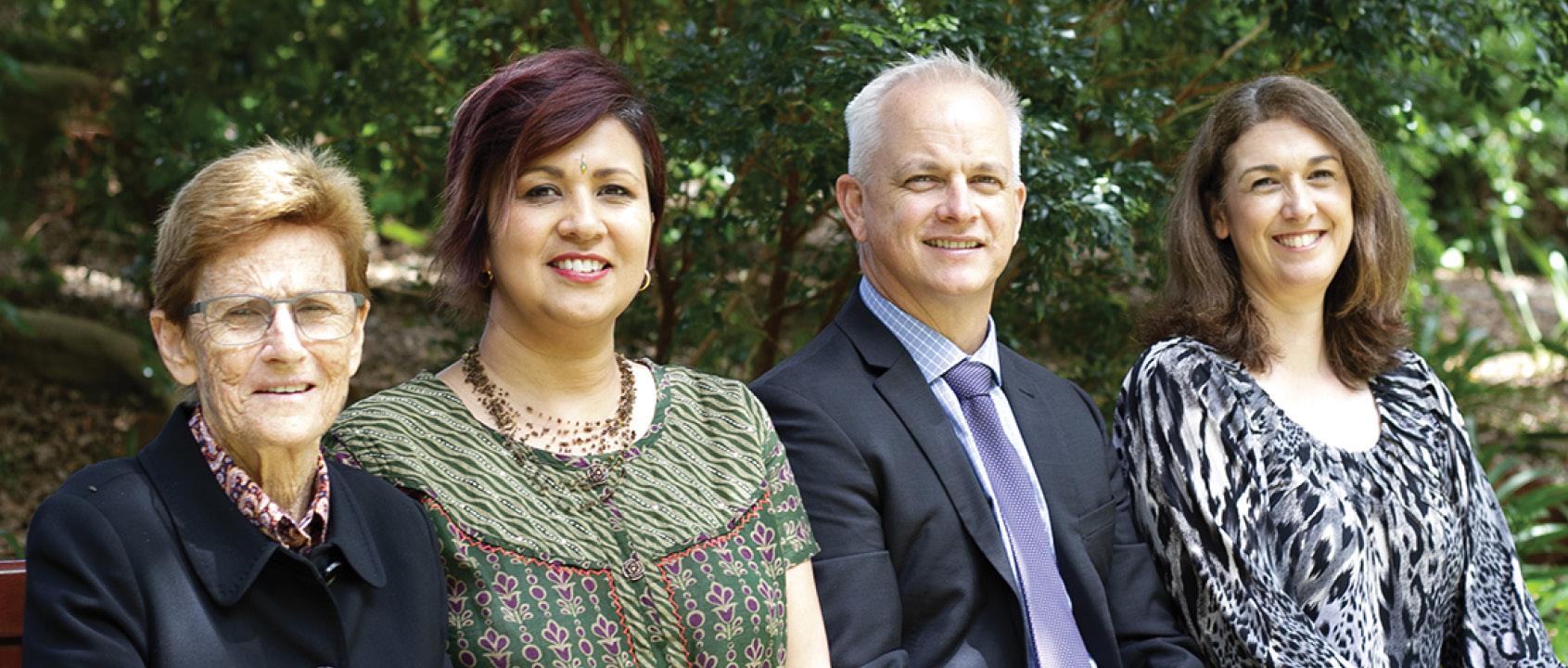
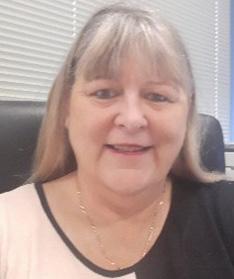

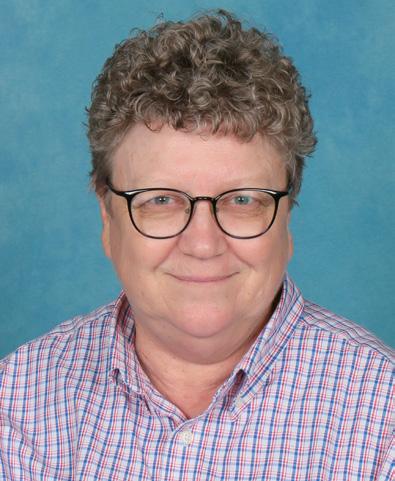

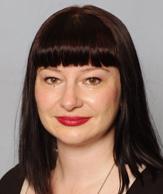
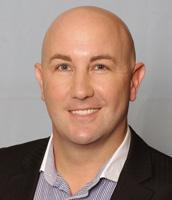
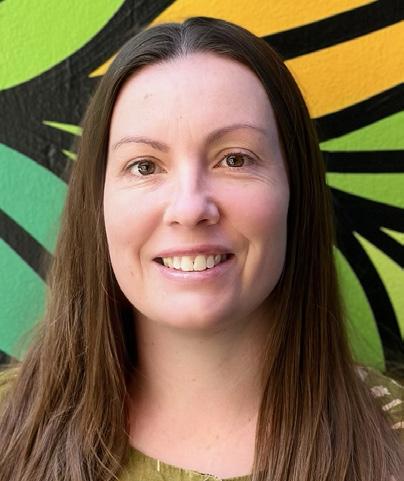
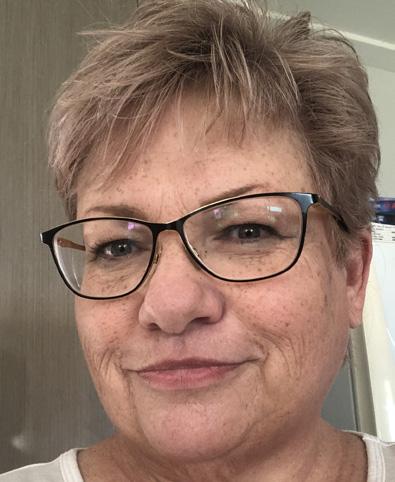
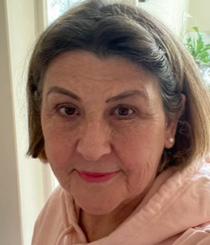
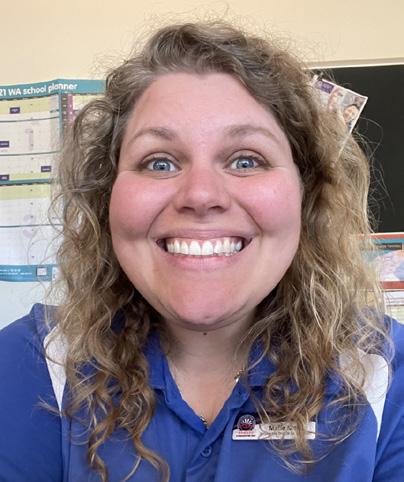

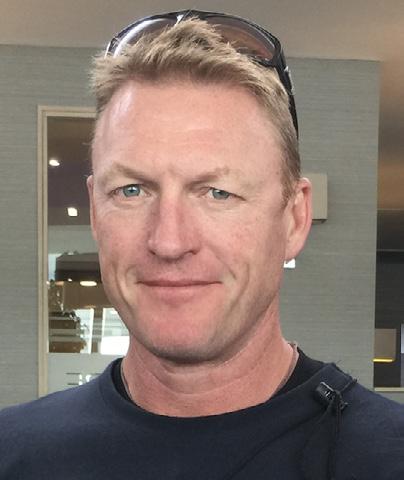
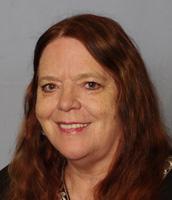
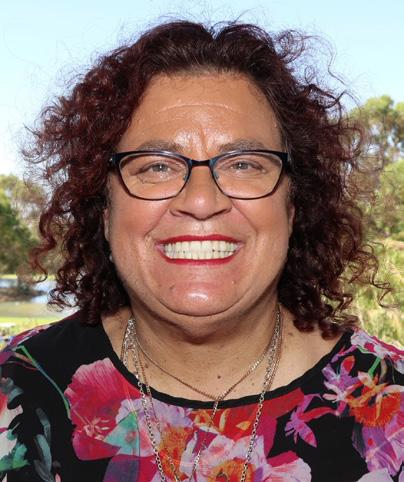
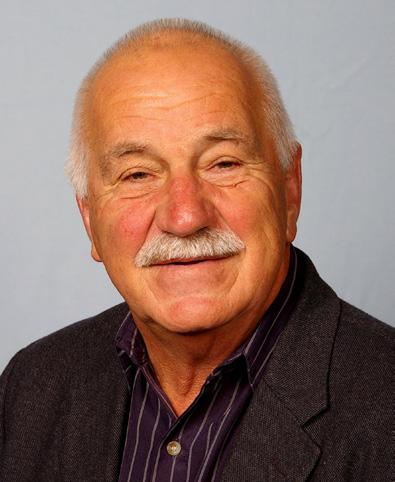

This edition of Western Teacher incorporates Getting Organised 2023.
We had the most incredible year in 2022 with one of toughest and most unusual General Agreement processes I can recall.
Under pressure from the Public Sector Alliance, which the SSTUWA helped to create, the state government changed its wages policy not once, but three times.
The SSTUWA negotiated a previously unheard of levelling up element which saw our members get initial salary rises in their pay earlier but still ensured they gained from further changes in wages policy by the state government.

In the end members got a pay rise of three per cent or $3,130 (whichever is greater), as well as a one-off cost of living payment of $3,000. For someone on $100,000 a year that means a total increase of $6,130 (pre-tax) last year, compared to the $1,000
capped increase the state government was pledging one year ago.
It was not a perfect result given the massive rises in the cost of living seen in 2022. It was though a significant step forward.
There were also significant gains in terms of workplace improvements for both schools and TAFE members.
Amazingly the whole process begins again in 2023. We need every rep and member behind us to take the gains made in 2022 as just the start in our battle for better workplaces for educators.
The union has developed a series of online resources for reps to answer their questions and enable every branch to ensure the new agreement is put into action at the workplace level. We will continue to encourage activism at the branch level.
Workplace branches are crucial to what we do.
As ever I offer my sincere thanks to those who have already stepped up as reps, deputy reps, women’s contact officers, WHS reps, treasurers, secretaries, District Council delegates or State Council delegates. For those considering it, I encourage you to do it.
You will receive training and support all the way, because as we like to remind members – you’re never alone in a union.
To help you get started, everything you need to know is in your Getting Organised guide, which arrived with this Western Teacher. If you need more assistance, contact your allocated school or TAFE organiser – you’ll find the list on page nine of the guide.
So please, join in. Have your say. Have your voice heard.
Last year saw a succession of headlinegrabbing climate disasters, from unprecedented heatwaves drying Europe’s rivers to catastrophic floods in Pakistan and Australia and the most powerful storms to hit Cuba and the USA.
Declarations from the UN’s Intergovernmental Panel on Climate Change are unequivocal; we must put an immediate halt to further coal and gas and rapidly transition to renewables.
We must also ensure eco-justice for the victims of climate change who are invariably among the world’s lowest greenhouse gas emitters.
In July 2022, Environment Minister Tanya Plibersek released the State of the Environment report (2021) which had been shelved by the Morrison Government in advance of the federal election.
The last election became known as “The Climate Election” delivering a clear message to politicians that Australians want decisive action on the climate after decades of obfuscation and interference by fossil fuel lobbyists and failure by government.

The State of the Environment report makes for distressing reading, with many of our treasured natural wonders on the brink of collapse, including the Great Barrier Reef, Ningaloo Reef and the seagrass meadows of Shark Bay to name but a few.
Land clearing, over-development, the overuse of chemicals in agriculture, deforestation and climate change have driven Australia’s environment and precious ecosystems to the brink.
In 2015, Australia was among 193 UN
member states committing to the Sustainable Development Goals (SDG).
This commitment involved a clear undertaking to “enhance climate change education” and to be accountable for implementing:
(i) global citizenship education and (ii) education for sustainable development including mainstreamed climate change education in (a) national education policies; (b) curricula; (c) teacher education and (d) student assessment.1
Those of us working in Western Australian public schools could be forgiven for being unaware of these undertakings and find ourselves asking why we have seen little, if any, evidence of progress in their implementation.
In June 2022 the Education and Health Standing Committee of the WA Parliament published a report following an inquiry into Western Australian schools’ response to climate change which acknowledged our international obligations to provide comprehensive climate change education. It also stated that:
The Department of Education should be widely promoting and funding climate action in schools because of the many and varied co-benefits for students, staff and the community. The strong links between Aboriginal cultures, science and sustainability offer a holistic and relevant framework for student learning. Climate education also easily lends itself to practical, project-based learning and problem solving. These approaches are not only the future of education, but they engage students through their authenticity and relevance 2
In the context of the growing climate
crisis, our clear obligations and the findings of our own parliament, it is hard to understand the “business as usual” mindset that exists in education.
One major reason for our lack of progress in implementing climate education and action at a system and school level resides in the direction that education has been headed under the influence of the private sector.
The idea of schools as businesses or corporate entities, rather than indispensable public institutions has become integral to their governance, values, programs, curriculum and even the pedagogies which pervade our schools.
In recent years there has been an increase in some school business plans being written under the mentorship of leaders from the private sector.
They adopt work streams and business metrics for measuring performance as well as nomenclature and corporate job titles.
Power is exercised by setting the agenda for schools and even at general staff meetings. How is it that our public education system with its inclusive, egalitarian philosophical basis has come to be pervaded by neo-liberal marketbased ideologies and values?
Why the bar-coding of our students as if they were commodities? Why the emphasis on teaching to the test, the endless gathering and analysis of data and the promotion and policing of teaching orthodoxy?
Teachers in some schools report being expected to teach in the exact same way using formulaic pedagogical approaches which fail to treat our students as unique individuals with diverse needs.
This leaves little room for teacher autonomy to address complex issues such as citizenship, climate change, inequality and human rights. It fails to develop problem solving and project focused approaches.
In short, it denies our students the opportunity to develop the global and sustainable competencies they so badly need for the challenges that lie ahead.
“Mentors” from fossil fuel industries deliver programs to thousands of students in WA promoting the interests and perspectives of the industry. They provide resources and programs in STEM, science and other areas.
The extent to which schools have
embraced these and other private sector/philanthropic organisations is troubling from an ethical and moral perspective.
Some schools have spent almost their entire professional development budget year on year sending their teachers off to private training providers to develop so called “high impact instruction” and “teaching mastery” based around repetitious and formulaic methods with massive workload implications.
Members also report being observed and performance managed on their fidelity to such methods.
Research from Canada, another heavily resource-based economy, has analysed the influence of the fossil fuel industry in politics and wider society including their reach into schools.

This research helps explain a lack of action towards a just energy transition and coined the phrase “petro-pedagogy” which illuminates:
How teaching practices and resources work to centre, legitimise and entrench a set of beliefs relating to climate change, energy and environmentalism that align with the interests of fossil fuel industry actors.3
The parallels between Canada and WA are apparent in terms of alignment of the form and content of education with the interests of the fossil fuel industry.
Our current focus on public schools as independent entities gearing up to meet the needs of industry help to explain a lack of action on climate and the UN SDGs more generally.
It is to be hoped that the Making Hope Practical report, currently with the Minister for Education awaiting action, will lead to far reaching reforms in line with our Paris obligations.
The SSTUWA made detailed written and in-person representations to the WA parliament’s inquiry into school responses to climate change.
We stand ready to work with the Department of Education to ensure that our thousands of members across the state can implement Education for Sustainable Development and Climate Change Education as per our undertakings.
This must involve significant support for teacher professional development, curriculum and assessment development
and provision for our young people to engage in climate and environmental action at school level.
They need and deserve agency to deal with the climate emergency; they must fully understand its systemic causes, its disproportionate impacts and the urgent measures necessary for its mitigation.
This is the core business of education and must come from teachers, not the fossil fuel industry or the private sector and the petro-pedagogy they promote.
Geoff Holt is a WA public school teacher and SSTUWA Executive Committee member. The opinions expressed in this article are those of the author and do not necessarily reflect any official policies or positions of the SSTUWA or AEU.
1. UNESCO. 2019. “Proposal for Monitoring of SDG Indicators 4.7.1, 12.8.1 and 13.3.” https:// bit.ly/3uMgu3v
2. Tallentire, CJ. 2022. “Making Hope Practical: Report of the inquiry into the response of Western Australian schools to climate change.” Education and Health Standing Committee of the WA Parliament. https://bit.ly/3WegBAF
3. Eaton and Day. 2019. “Petro-pedagogy: fossil fuel interests and the obstruction of climate justice in public education.”
Environmental Education Research 26 (4): 457-473. https://doi.org/10.1080/13504622 .2019.1650164
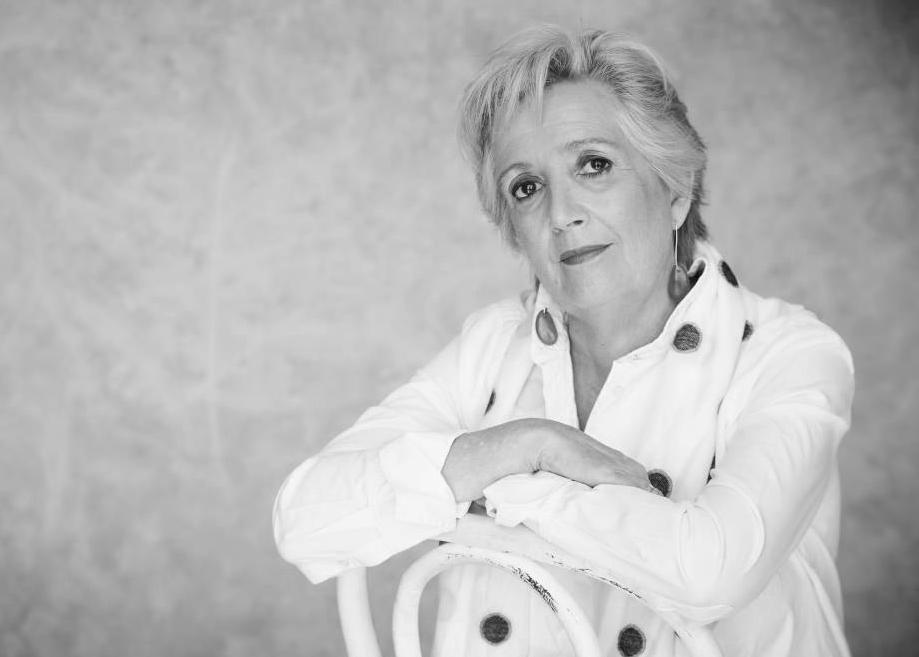
Every election, state and federal, is an opportunity to draw attention to the gross inequity of Australia’s bizarre schools funding system. No other developed country funds schools the way we do. We are the world leader when it comes to giving public money to private, feecharging schools. And we languish near the bottom of international rankings when it comes to the percentage of education funding we give to our public schools.
Despite this stark reality, those seeking to justify the way Australia differentially funds its schools tend to fall back on the same tired old myths. And such claims can be confusing to debunk, especially in the heat of an argument. So, maybe –having enjoyed more than my fair share of heated arguments on this subject – I can help.
We all pay taxes to fund all sorts of public services and amenities that support our community. Taxation is not a deposit account that we can draw on to “buy” whatever service we choose.
Taxation funds all sorts of things we may never ourselves use – ambulances we may never need, firefighters we may never call, roads we will never drive on. And childless taxpayers also fund schools. According to Myth 1, they should be able to withdraw these taxes because they do not have kids.
Our taxes fund public transport, for example, but just because someone chooses not to catch a train or a bus, we don’t believe their choice of private car should be subsidised by the taxpayer. Yet, car drivers could make many of the same arguments that private school supporters do. After all, by choosing not to use public transport they could argue they leave more space for other commuters. Or that
if everyone used public transport, the system would be overwhelmed.
But it’s worse than that. Given that public schools educate the vast majority of our most disadvantaged children, those who argue that fee-charging schools should be subsidised to support their choice are essentially saying that families who have no choice should subsidise those who do – to buy what they perceive is an educational advantage! It is literally a case of the poor subsidising the rich so the better-off can shut the children of the poor out and lock them into underfunded schools.
Quick comeback: “We all pay taxes for stuff we don’t use! So, what you’re really saying is: families with no choice should subsidise your choice to give your kids an advantage over theirs?”
Record funding to private schools,
perhaps, but not to public ones. According to a recent study, the Morrison Government gave an extra $10 billion to private schools, while public schools remain underfunded by $6.5 billion per year. In fact, almost every public school in Australia is funded below the minimum agreed schooling resource standard (SRS), while every private school in Australia is funded at or above this benchmark.
This glaring injustice is made even worse when you consider that public schools overwhelmingly educate the most disadvantaged children. These kids are also the most expensive to teach because they need more resources to reach their potential and overcome the inevitable inequities visited upon them at birth.
Which leads to the big question of what we want our education system to be –one that optimises the opportunity of educational success and social mobility for even the most disadvantaged students, or one that further entrenches inequality and segregation.
Myth 1: “I pay taxes. The funding system should support my choice.”
Myth 2: “The federal government has invested ‘record’ funding in schools.”
While our growing population always necessitates increased funding, it’s true we waste a lot of school funding in Australia – but not on public schools. We waste it on already luxuriously resourced schools, often charging exorbitant fees, serving high-wealth communities and enrolling students who are already doing well.
Quick comeback: “Record funding overall, but not for public schools! Funding for private schools has been rising at eight times the rate of that for public ones. How is that fair?”
schools – the states provide 80 per cent, the feds 20 per cent.
This may sound reasonable, but here is why it does not work:
Most state governments, including Victoria, give less than 80 per cent to public schools and more than 20 per cent to private.
Public schools enrol at least 80 per cent of the students who are most expensive to educate while private schools cream off the cheaper end. This means that even if public schools were funded according to Turnbull’s legislation, they still would not have enough to give their most vulnerable students the help they need.
the help they need to break generational disadvantage.
Quick comeback: “That’s just an old hangover from federation! How does it make sense for the neediest schools to be dependent on the most cashstrapped arm of government?”
Do we want our education system to optimise opportunity and social mobility, or to further entrench inequality and segregation?
When Malcolm Turnbull was Prime Minister, the parliament legislated an 80:20 split in school funding. It was meant to end the school funding wars. It didn’t. Here’s why.
According to this legislation, the federal government is meant to provide 80 per cent of public funding to private, feecharging schools. Each state government is meant to give their private schools 20 per cent. The reverse is true for public
State governments are dependent on federal GST revenue for their income. It simply does not make sense to make the neediest schools dependent on the most cash-strapped arm of government while the most advantaged schools can depend on the richest one.
Public schools in the poorest states (Tasmania and the NT) enrol some of Australia’s most disadvantaged students, and their state or territory governments simply don’t have the means to give them

Because private schools (with a handful of honourable exceptions) carefully choose where they will and will not open campuses, and which kids they will or will not educate, all they do is remove many of the most advantaged kids from the public system.
In doing this, they actively harm our public education system. Here’s how: (Continued on page 14)
Myth 3: “The states are responsible for funding public schools. The federal government funds private ones.”
Myth 4: “Sending my kid to a private school saves the public purse. The system would collapse if we all sent our kids to public schools.”
(Continued from page 13)
1. Less kids from wealthy and middleclass backgrounds reduces a public school’s ability to fundraise and reduces the number of well-educated parents who can advocate and lobby on behalf of their own children’s schools and public schools in general.

2. By removing the students requiring less support, they reduce the economy of scale. In other words, every middle-class kid who leaves the public system increases the ratio of needier students, thereby increasing the per-student cost. If most kids went to public schools, education would be cheaper for everyone, including governments, as well as much fairer.
3. The system would not collapse if everyone sent their kids to public schools. The rest of the world – including much higher achieving systems than ours –manages to do it perfectly well. In fact, it would be far more efficient and less wasteful. As it is, we spend far too much money on infrastructure due to our parallel systems and not enough on what goes on inside them.
Quick comeback: “The rest of the world seems to manage fine. If most kids went to government schools, the public system would be better funded,
According to research, private schools do not do better academically. Once school
results are adjusted for the differences in the socio-economic status of the students they enrol, there is no difference in academic results between public and private schools – and arguably public schools actually do better, especially given they have far less money.

much fairer – and we’d waste a lot less taxpayer money!”
Myth 5: “The private system has the best teachers and gets better results.”
Even more compelling is the consistent evidence showing that public school students do better at university than their private school counterparts.
As for the “better teachers” argument –firstly, all teachers have been trained at the same institutions and many of them move between the public and private systems. Secondly, many teachers elect to work in the public system precisely because they want to make the greatest possible difference. Public schools are full of people deeply committed to empowerment through education –and, in my mind, that’s a great basis for cultivating the creativity and critical thinking skills we know our kids need.
Quick comeback: “Once you factor in students’ circumstances, public schools get better results – and their students fare better at uni. Imagine what public schools could do if they were properly funded!”
deciding to buy your child what you perceive as an advantage cannot be called a “sacrifice”. It is nothing more than a purchase decision. It’s a bit like saying: “I made sacrifices to buy this luxurious house in a prestigious suburb, so I should get a government subsidy.”
The impact of making parents feel that they should, by whatever means, send their kids to a private school has been fuelled by conservative governments who would be happy to send as many families as possible into the private sector, leaving a residual public system for the poor. Not only is it privatisation by stealth, it destroys one of the most precious aspects of public education: ensuring the highest quality education for every child who walks through the gates; and building cohesion and connection within a diverse cross-section of each local community.
independent schools has shrunk dramatically.
To sum up, most of the benefits of private education are cosmetic: more about buying status than accessing a better education. The tragedy is that Australia is the only country in the world that publicly funds the fears, insecurities and status anxieties of some parents to the detriment of all, but especially the most disadvantaged.

Quick comeback: “Choosing to buy your kid what you think is an advantage can hardly be called a ‘sacrifice’. Conservative governments are basically fuelling parents’ fears to further their privatisation agenda.”
No parent should feel they need to make sacrifices to get their child a decent education in the fourth richest country in the world. If that is true, we should all take to the streets in protest. Moreover,
And before you let someone tell you that public funding puts downward pressure on fees… It’s been more than two decades since John Howard justified a substantial boost in private school funding as improving “choice and affordability”, and fees have done nothing but rise steadily (and in some cases rapidly) since that time. Meanwhile, the proportion of disadvantaged students attending
Jane Caro is a writer, social commentator and documentary-maker. Her many books include The Stupid Country: How Australia is Dismantling Public Education and What Makes a Good School. This article was first published in the Victorian AEUnews magazine and has been reproduced here with permission. The opinions expressed in this article are that of the author and do not necessarily reflect any official policies or positions of the SSTUWA or AEU.
Myth 6: “I make sacrifices to send my child to a private school.”


The SSTUWA looks after our members and their rights. If you run into problems at work, your union has got your back.
Properly funded, accessible education Promoting the benefits of properly funded and accessible public
The New Educator Network (NEN) provides the advice, support and networking opportunities new educators need at the early stages of their careers.
The SSTUWA Education and Training Centre (ETC) provides a range of high quality industrial and professional education opportunities, including short courses, conferences and online events, offered during term time and school holidays.
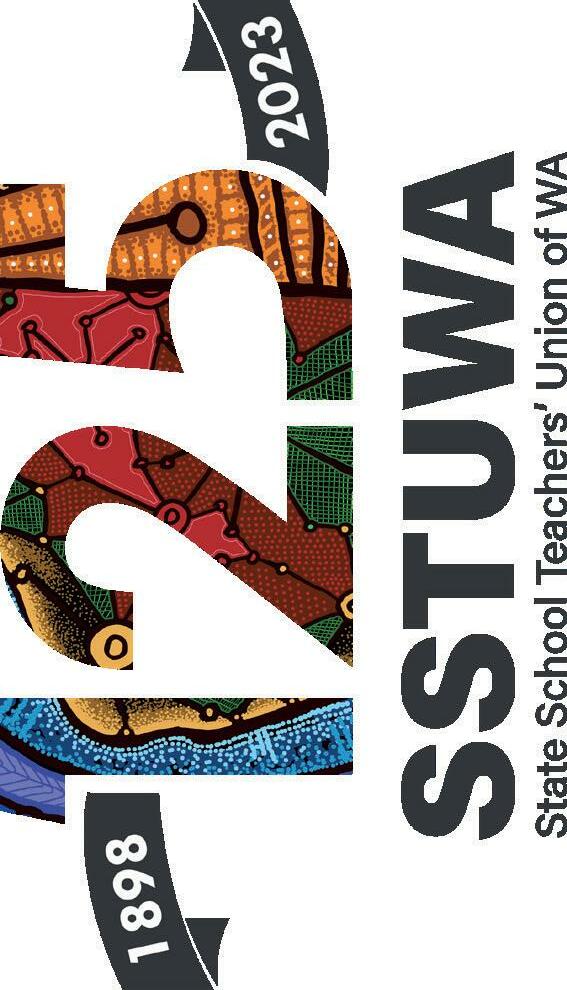
education for all is a key area of our operations. Join us in the campaign for fair funding of public schools.
The SSTUWA has secured a number of achievements for members: class size limits, graduate entitlements, paid family and domestic violence leave, various allowances and much more.

Members can access a complimentary simple will, or a $150 contribution towards a complex will or will for their partner/spouse, where appropriate. Ts&Cs apply.
Your union membership fees are tax deductible, and your fees are dependent on your salary scale and FTE. Casual/relief teachers access a reduced fixed rate.
Union membership means you are never alone at your school. When a group of members act and speak together, their employer listens. This is how unions improve workplaces.

The SSTUWA collectively negotiates the pay and conditions of all educators in WA public schools and TAFEs. The larger the membership base, the more powerful we are at the bargaining table.
Members have access to a range of discounted products and services: educational resources, access to Teachers Health, travel bargains, movie tickets and more.

Amid a string of national and state-wide award nominations and multiple wins (including the top school prize at last year’s Australian Education Awards), it’s safe to say Bunbury Primary School had a good 2022.
When you take a closer look at the holistic approach to learning embraced by the school that combines pastoral care with innovative and data-driven teaching methods, as well as the strong community spirit that teachers and leaders at the school strive to foster, it’s not hard to see why this public school has received so many accolades.
Bunbury PS has around 450 students from Kindergarten to Year 6. To ensure every student gets the best learning experience, staff rely on technology, focused upskilling of teachers and data-driven education techniques.
The school incorporates Kagan Cooperative Learning structures to keep collaboration and engagement at the core of its learning environment, and Positive Behaviour Support approaches for student well-being and behaviour management.

For assessment and feedback, Bunbury PS utilises Brightpath, WA-made software that records assessment results and
outputs formative and summative information for staff. This can then help form a basis for in-depth student feedback and comparison.
Bunbury PS actively nurtures professional development for staff, providing multiple opportunities for upskilling in ICT to improve educational outcomes for students.
In 2018, Bunbury PS became a teacher development school in digital technologies as part of the WA Department of Education (DoE) DigiTech program, sharing curriculum expertise and exemplary teaching and learning practices.
Bunbury PS also opens its professional development programs to teachers outside their school.
In an inspiring harmony of digital technology, outdoor learning and community spirit, Bunbury PS has created an outdoor e-library, consisting of QR codes posted around the grounds that link to e-books on various topics.
An interactive map revealing the titles and locations of the e-books is available online, inviting students, as well as the wider Bunbury community, to explore.
Reflecting the ever-changing structure
of the natural world, the design of this innovative e-library allows the e-books to be updated and changed, while the QR codes remain the same.

SSTUWA members and Bunbury PS Principal Shane Doherty and Associate Principal Franca Dillon attended the Australian Education Awards ceremony in Sydney last August, with the school having been nominated for two awards: Best Use of Technology in a School (the only primary school in this category) and Primary School of the Year (Government), which they won.
Following their win, Bunbury PS came out on top to win the highest honour of the night for a school: Australian School of the Year.
The school’s community-nurture, student support, academic achievement and innovative approaches to teaching and leading using digital technologies were identified as leading factors towards the nod.
The school was also a finalist for the 2022 WA Education Awards in the Excellence in Teaching and Learning (Primary) category.
Congratulations to all of our members at Bunbury PS for this well-deserved recognition for your hard work and dedication to education.
In this story, I share my personal trajectory as a teacher experiencing publicprivate partnerships (PPPs) in the Brazil countryside and urge stakeholders to reflect on the problems involving such partnerships to education. In addition, I reflect on how such PPPs are a result of the lack of financing in education and on how important it is for stakeholders to advocate for enlarged budgets in the sector in the context of the Transforming Education Summit.
After the global pandemic, many challenges already faced by educators were deepened. The Transforming Education Summit provides us with an opportunity to sustain pressure on member states on important matters in education. I would like to invite you to consider my experience as an educator in Brazil as one of the many examples of why governments must commit to providing larger budgets for education.
In Brazil, it is common for parents to avoid placing their children in public schools, especially if they have the necessary financial means. We hear from elders that “education is not as it used to be in the good old days…”. The “good old days” is usually associated with the Brazilian Dictatorship Period (1964-1985) and the years before that, when mass media was forced to give favourable publicity to state services (such as education) to promote the authoritarian regime.
When the Democratic Period began, the state became responsible for providing free public education to all people and although universal access to education was a major gain in the newly established democracy, the expanded demand for education services was followed by budgetary constraints in the sector. In
addition, the continuous pressure from international organisations for countries – mainly in the Global South - to adopt PPPs in order to improve educational results has also influenced Brazilian public education.

As a teacher, I was able to personally experience some of the effects of private agents in education. When the school where I was teaching announced a partnership with one of the main private institutes in Brazil, most teachers were quite excited about it - including me. We saw this as a possibility to bring fresh, modern perspectives to the school and to improve teaching-learning processes.
As time went by, it became clear that this was not necessarily the case. Because of the influence of this private foundation, teachers lost their pedagogical autonomy: we had to settle for pre-made class plans (provided by the institute), agree to extra hours of work filling in spreadsheets and reports with data on student performance – all justified as means to improve “learning”. The problem was that learning was never the focus of this “improvement”. Learning was confused with better results in assessments and indicators. All we would hear in pedagogical training sessions were actions we should take to diminish retention rates, reduce absences, ageseries distortion and of course, improve our students’ scores in national (and international) assessments.
Suddenly, focusing on the teaching processes – the pedagogical needs and interests of students or how to make sure they become fully independent members of society – was forgotten. And teachers who dared to question this situation received hostile treatment
from management. Moreover, we were constantly put in competition with other schools or other teachers that performed better. We were regularly reminded of the need to act quickly and efficiently so that students don’t lose focus on the matters given priority.
I wonder if it would have been different if we had had more freedom to teach what students were interested in – and in need of – learning. At some points, I
had students laughing at some of the activities I proposed in class (which were part of the pre-made class action plan) because they considered them too silly. And the worst part is, I agreed with them. But I did it anyway in order to fulfil the action plan. As a beginner teacher, I was scared I could lose my job if I didn’t do as I was told.
Now, I don’t want this story to discourage people from becoming educators. Instead, I want to use this platform to urge educators, stakeholders and society to advocate for free public education and to raise questions as to how and why non-state actors still educate over 350 million children worldwide. Moreover, I want us to consider how the enlargement of education finance could contribute to reversing this scenario and hold states accountable for education quality –instead of handing education to the private sector.
As several studies show, better financing of education could provide education workers with fair salaries and incentivise more people to join - and stay - in the profession. It could allow workers to have only one job - instead of juggling
two or three, as most teachers must do to achieve financial independence. It would allow educators to have time to examine their pedagogical approach, their students’ needs and use their knowledge and creativity to improve their teaching. It would allow students to have good social support in schools. It would enable schools to be better equipped, safe and ready to welcome students and the community into what is supposed to be the exciting process of teaching and learning.
Most of all, expanded financing gives schools the freedom of choice. Nowadays, although there are no formal obligations for schools to join PPPs, the lack of resources makes PPPs extremely appealing. Foundations promote PPPs as an inexpensive (or “free of cost”) solution to all school problems, facilitating education “quality” with the resources and skills the institution will provide them with.
But PPPs are never free of cost. They cost education workers their pedagogical autonomy and private institutions benefit from them in several ways: financially –through tax benefits, for example – and politically, by gaining space and power
in the public sphere. In addition, PPPs have not proven to have significant positive effects on large education systems, although further research is still needed. Therefore, states must enlarge financing in education to ensure schools can choose independently, focusing on pedagogy and workers’ and students’ well-being.

Schools, students and educators worldwide cannot, should not and will not pay this high price.
Carolina Finette is a master’s degree student in Education Policy and International Comparative Education at the Autonomous University of Barcelona (Spain). Her research focuses on resistance movements to education privatisation. She has been an elementary school and early childhood educator in Brazil. The opinions expressed in this article are those of the author and do not necessarily reflect any official policies or positions of Education International (EI), the AEU or the SSTUWA. This article was first published on the EI website and has been reproduced here with permission.
First Nations people please be advised this article speaks of racially discriminating moments in history, including the distress and death of First Nations people.
In a recent radio interview with 4BC, Prime Minister Anthony Albanese said students should learn about the atrocities suffered by Indigenous people in Australia. Historical events such as massacres should be part of the Australian history curriculum. Mr Albanese added it was something that should be done without feelings of shame from non-Indigenous teachers.
In addition, Mr Albanese has stated teachers’ cultural competency could be further highlighted as an educational issue to be addressed. Cultural competency involves an organisation or individual valuing the importance of other cultures and using this to inform their working practices.
This is one of the reasons the Australian education system requires the voice of Indigenous educators: Australian
teachers (most of whom are nonIndigenous) can lack confidence and effectiveness in teaching Indigenous students and delivering Indigenous curriculum content.
Teaching true Australian history that represents a more balanced telling is vital. But it is only one aspect of Australia’s education system that requires urgent attention.
The Australian education system is founded on principles espoused by British colonisers and continued and redeveloped by Australians. This way of schooling predominantly follows Western ideas about education and how people learn.
As a result, the education system is not accessible to everyone. For example, Indigenous people in Australia have had their own educational practices in accordance with Indigenous knowledge systems for more than 60,000 years. These methods of teaching involved Indigenous perspectives of the world encompassing
understanding about what knowledge should be learned and how.
This is why education needs to be flexible and adaptable to different ways of learning. Not all children are the same, or learn in the same way, and they can have different learning and cultural needs.
Mr Albanese has raised one issue that could be extremely important for everyone in Australia. However not all stakeholders will necessarily see it that way. Parents and teachers will have their own priorities for their children and changing the history curriculum may not even be on their radar. Engagement with changes may be slow.
Australian prime ministers have commented on the history curriculum in the past. This has included improvements over time to teaching about Indigenous people in Australia, without necessarily having an in-depth curriculum or practical understanding. These improvements have been slow. However, the lead-up to the planned referendum on whether to institute an Indigenous Voice to Parliament is an ideal time to discuss further opportunities for progress in education for children in Australia.

Many Indigenous people in Australia experience difficulties in engaging with the current system, as documented annually in the NAPLAN assessment. Difficulties may include language barriers, Indigenous culture not represented in classrooms and curriculum, and disengagement. This is an ongoing concern, discussed and investigated by many academics both Indigenous and non-Indigenous.
Curriculum and ways of teaching have been addressed with the Australian
Curriculum, Assessment and Reporting Authority continuing to update the Australian curriculum. These updates aim to be inclusive of Indigenous culture through cross-curriculum priorities.
These priorities are still not key learning areas within a school curriculum that focuses instead on Maths, Science and English. They are offered to teachers as opportunities to embed Indigenous related information into key learning situations, but they are not mandatory.
Difficulties could be made worse by an apparent lack of teacher knowledge and efficacy in working with Indigenous students and in teaching Indigenous curriculum content. The Australian Institute for Teaching and School Leadership has attempted to improve this by implementing changes to the Australian Professional Standards for Teachers. These changes address teachers’ cultural competency, by increasing cultural teaching resources, due to be released.
However these efforts to improve our Australian education system are temporary fixes to specific problems. We need a more complete approach guided by Indigenous education experts who understand these issues from Indigenous perspectives.
Year in and year out, I hear how they didn’t know about the degree of harsh treatment, cruelty and trauma suffered by Indigenous people in Australia since colonisation. “We didn’t learn this in school,” they say.
This proves school students need to be given a balanced and truthful education about Australia’s history. This needs to include the stories of massacres, dispossession, segregation and exclusion, as well as the personal long-term impact of the Stolen Generations and other racist government policies.
If these current teaching students had been afforded this education, the teaching workforce might have been better prepared to teach this. They would already have the necessary foundational knowledge and the ability to empathise through education and understanding. Without cultural competency through education we can be left with ignorance and racism, which are counterproductive to Australia’s journey to reconciliation.
Decolonisation is a word becoming more widely used to express the need for a more balanced education system that includes First Nations peoples. It has been popularised for many years in countries such as Canada and New Zealand.

Decolonisation has been defined as restorative justice through cultural, psychological and economic freedom.
Embedding Indigenous ways of learning, honouring different knowledge systems, and acknowledging the histories that have impacted us would decolonise our education system. This would also provide an opportunity for all of Australia to understand First Nations peoples and centralise these cultures within the curriculum as foundational learning for all.
Indigenous educators in the Northern Territory recommended that Indigenous knowledge in education for both Indigenous students and Indigenous teachers is of great importance. It is valuable to all teachers to understand that people do not leave their culture at the school fence and pick it back up when they leave school at the end of the day.
Before anything can happen, there needs to be an informed audit of the larger underlying issues within our national education system. Although it’s significant, the way we teach Australian history is only one small part.
Dr Tracy Woodroffe is a lecturer in Teacher Education in the College of Indigenous Futures, Education and the Arts and lecturer in Indigenous Knowledges, Charles Darwin University. The opinions expressed in this article are those of the author and do not necessarily reflect any official policies or positions of the AEU or the SSTUWA. This article was first published on the Conversation website and has been reproduced here with permission.
As an educator for more than 30 years, nothing has crystallised more for me the problems with the system than listening to students studying to become teachers.
What have children been getting told about Australia’s history?
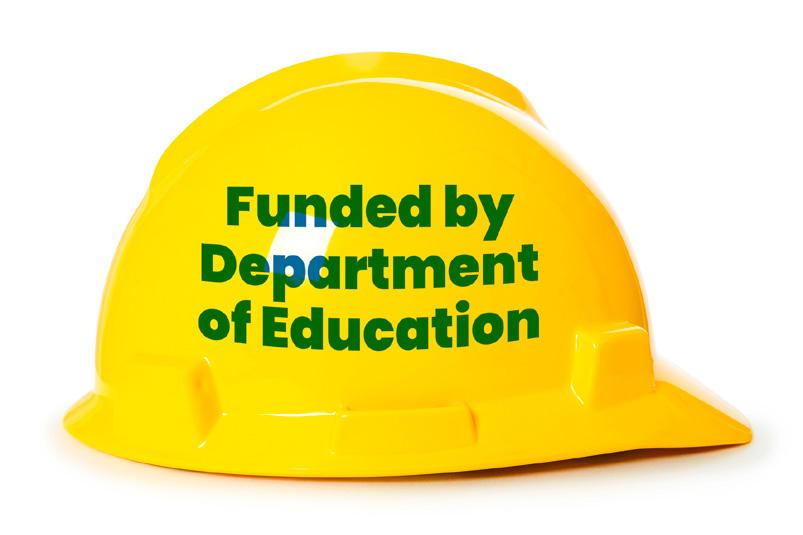
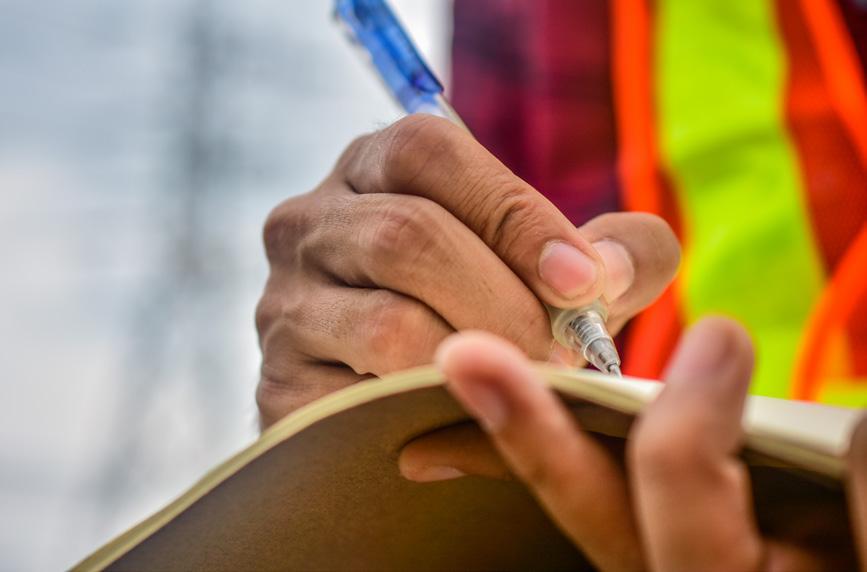
If you were elected as an HSR after 31 March 2022 you are eligible to attend a WHS five-day introductory course here at the SSTUWA. The Education and Training Centre is pleased to partner with the Department of Education (DoE) and Unity Training to conduct this newly-created Education-Specific Five-Day Introductory Course for Health and Safety Representatives
This five-day course is a statutory requirement for elected HSRs. It provides HSRs within the Education Department with the skills and knowledge necessary to effectively perform their functions and powers in protecting and promoting the work health and safety of those they represent.
This newly developed course has been created based on the new WHS Act 2020 and WHS Regulations 2022. It will provide updated information regarding new definitions related to the legislation and the expanded duties of stakeholders under the new legislative requirements.
The course is open to members and non-members of the SSTUWA and to all DoE staff.
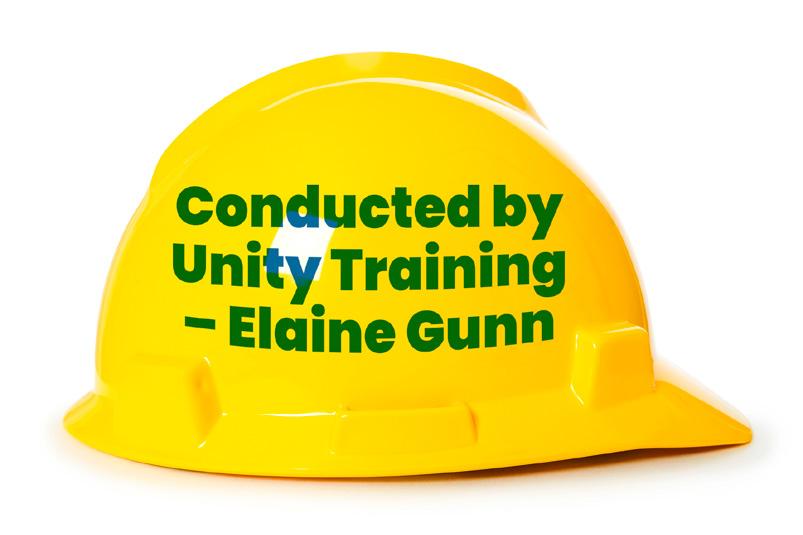
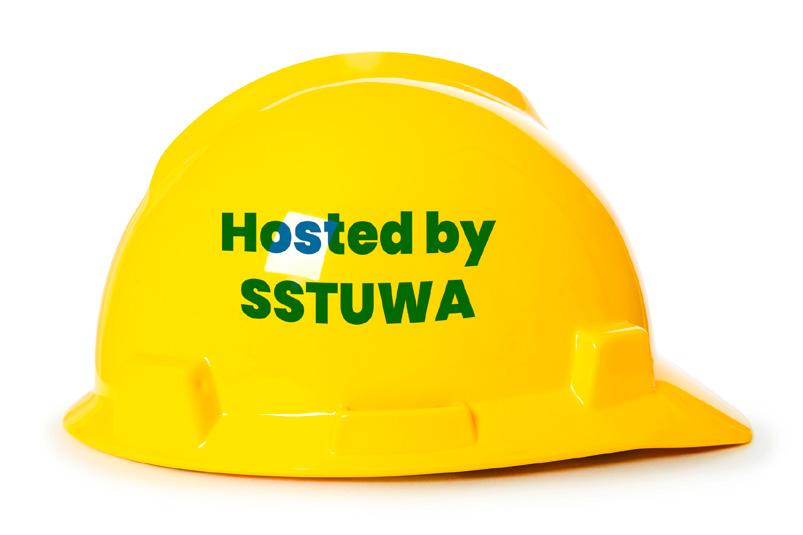
New DoE HSRs are eligible to register for this course if you meet the following criteria:
• You are the official elected health and safety representative (HSR) at your school (elected after March 2022).
• You have registered your name with the DoE OSH Team as the newly elected HSR for your school by completing an Election Notification Form: https://ikon.education.wa.edu.au/-/elect-a-health-and-safety-representative/
• You have not previously completed the new Five-Day Introductory, Education-Specific WHS Course.
• If you are from a regional area and you have written permission from the DoE Central Office OSH Team to attend the course in Perth.
If you attended a Five-Day Introductory Course in 2022 as the newly elected HSR, under the new legislation you are eligible to attend a refresher course in the second and third years of your term. This one-day refresher course is designed to review key aspects of the five-day course and provide opportunities to apply specific aspects of the legislation to your personal educational setting. Delve more deeply into DoE policies, procedures and agreements when carrying out the role of the HSR.
Refresher course: Who can attend?
DoE HSRs are eligible to register for this course if you meet the following criteria:
• You are the official elected health and safety representative (HSR) at your school (elected after March 2022).
• You have registered your name with the DoE OSH Team as the newly elected HSR for your school by completing an Election Notification Form: https://ikon.education.wa.edu.au/-/elect-a-health-and-safety-representative/
• You completed the new Five-Day Introductory, Education Specific WHS Course in 2022.
• If you are from a regional area and you have written permission from the DoE Central Office OSH Team to attend the course in Perth.
10% discount on personal income tax returns for members. sstuwa.org.au/aston
Industry Fund Services
Specialist financial products for union members. sstuwa.org.au/ifs
LIFE Financial Planners
$1,200 off your statement of advice fee plus a free financial health check for members. sstuwa.org.au/lifefinancial
Teacher Tax
$99 tax returns for members. sstuwa.org.au/teachertax
TIPS Financial Services
$1,100 discount on your TIPS Transition to Retirement strategy or Retirement plan. Exclusive to members. sstuwa.org.au/tipsfs
Special offers throughout the year for members. A bank built by, and for, union members. sstuwa.org.au/mebank
Mortgages, Money and Me
Complimentary advice, property reports, finance tools and more for SSTUWA members. sstuwa.org.au/mmme
When it matters, OFX it. Save with the experts in international money transfers. sstuwa.org.au/ofx
Teachers Mutual Bank
Banking exclusively for the education community. sstuwa.org.au/tmbank
Vehicle salary packaging – save time, money and tax. Receive a $300 gift card with your new car. sstuwa.org.au/allwestfleet
Mechanical and electrical services.
Members receive $20 off any service or 5% off any repair. sstuwa.org.au/autobahn
Exclusive offer including $500 fuel card, 4 years free service and more. sstuwa.org.au/bayswatermazda
National fleet pricing on a range of products and services. sstuwa.org.au/bobjane
easifleet
$250 Magic Hand Carwash voucher with any easifleet procured novated lease. sstuwa.org.au/easifleet
Europcar
10% discount on vehicle hire in Australia. sstuwa.org.au/europcar
Fleet Network
Package your next car and save on tax. Bonus gift with vehicle delivery. sstuwa.org.au/fleetnetwork
You choose the car, then we find you the lowest price. sstuwa.org.au/motormarket
tyresales.com.au 10% discount on tyres. sstuwa.org.au/tyresales
We’ll find a car you’ll love. Save time and money when sourcing your next vehicle. sstuwa.org.au/westernmotors
Altronics
Build it yourself electronics centre. VIP trade discount in store and online. sstuwa.org.au/altronics
For details visit: sstuwa.org.au/apple
Dell
Save up to 5% off selected items. sstuwa.org.au/dell
Huge savings for members on laptops, accessories, printers and more. sstuwa.org.au/hp
Save on your IT with access to the PLE Computers academic portal. sstuwa.org.au/ple
The Good Guys Commercial
Online access to live discounted pricing on The Good Guys’ range. sstuwa.org.au/thegoodguys
Classroom Management
A Thinking and Caring Approach. By Barrie Bennett and Peter Smilanich. sstuwa.org.au/classroommgmt
Effective Group Work
Beyond Cooperative Learning. By Barrie Bennett. sstuwa.org.au/effectivegroupwork
Graphic Intelligence
Possibilities for Assessment and Instruction. By Barrie Bennett. sstuwa.org.au/graphicintelligence
Instructional Intelligence
Building Instructional Expertise for the Classroom. An SSTUWA project in collaboration with Barrie Bennett. sstuwa.org.au/instructionalintelligence
Teacher Superstore
5-10% discount, in store and online. sstuwa.org.au/teachersuperstore
Discounts on physical tickets (greater savings) and instant digital tickets. sstuwa.org.au/movietickets
Outback Splash
Featuring both water and year-round attractions. Discounted tickets for members. sstuwa.org.au/outbacksplash
Rockface
Indoor rock climbing in Balcatta. $15 all day climbing pass with harness hire. sstuwa.org.au/rockface
Access wholesale prices with a complimentary day pass. sstuwa.org.au/campbells
Best value winery tour in the Margaret River Region. 10% discount for members. sstuwa.org.au/cellardor
Cracka Wines
7.5% off online wine orders. sstuwa.org.au/cracka
Swan Valley “Speed Grazing” – 20% discount. Good Food, Wine & Cider (am) or Good Food, Wine & Beer (pm). sstuwa.org.au/tastebudtours
Goodlife Health Clubs
20% discount on platinum 12 month memberships. Includes access to all Goodlife Health Clubs in WA. sstuwa.org.au/goodlife
St John
First aid saves lives. Discounted first aid courses and kits for members. sstuwa.org.au/stjohn
20% discount on spectacle frames and lenses. Perth and East Perth. sstuwa.org.au/waopticians
Buy, build and invest with confidence. $50 discount on building inspections. sstuwa.org.au/houspect
Trade prices on paint and painters’ hardware. Builders prices on all other hardware lines. sstuwa.org.au/jbs
SkylightsWA
Specialising in skylights and roof ventilation, servicing all regions of WA. 7% discount off selected products. sstuwa.org.au/skylightswa
ISinsured
Insurance for union members. Home, contents, car, landlords. sstuwa.org.au/isinsured
SSTUWA
Access to quality legal services for both work-related and personal matters. sstuwa.org.au/legal
Teachers Health Fund
Join the thousands of teachers who have already made the switch. sstuwa.org.au/teachershealth
Teachers Health – Travel
For details visit: sstuwa.org.au/travelinsurance
Dot Mall
BBQs, heaters and backyard kitchens. 5% discount for members. sstuwa.org.au/dotmall
Let Union Shopper find the best deal on your electrical purchases. sstuwa.org.au/electricalbuying isubscribe
Up to an extra 10% off any print and digital magazine subscription; over 4,000 titles. sstuwa.org.au/isubscribe
Jackson’s
10% discount in Jackson’s 12 shops and online. sstuwa.org.au/jacksons
Petals Flowers & Gifts
20% off flowers and gifts. World-wide delivery available. sstuwa.org.au/petals
Teacher Superstore
5-10% discount, in store and online. sstuwa.org.au/teachersuperstore
The Good Guys Commercial
Online access to live discounted pricing on The Good Guys’ full range. sstuwa.org.au/thegoodguys
Vet Products Direct
10% discount on pet products, plus advice from professionals. sstuwa.org.au/vetpro
Accor
Great savings for teachers at Accor Hotels in the Asia Pacific region. sstuwa.org.au/accorhotels

Choice Hotels welcomes SSTUWA members with exclusive rates at locations in Australia and NZ. sstuwa.org.au/choicehotels
Comfort Hotel Perth City
Rooms from $145 per night including Light Start Breakfast for two. Located near the WACA in East Perth. sstuwa.org.au/comfortperth
Experience Oz
Save 10% on over 3,000 experiences across Oz + NZ. sstuwa.org.au/experienceoz
Inn the Tuarts Guest Lodge
Forest retreat, 4-star, with indoor pool, Jacuzzi, sauna and BBQ. Adults (12 years+) only. Five minutes to Busselton. Studios and rooms. 22.5% off rack rate or best available rate. sstuwa.org.au/innthetuarts
Jarrah Grove Forest Retreat
Luxurious, self-contained accommodation in Margaret River. Discounted rates for members. sstuwa.org.au/jarrahgrove
Mandurah Houseboats
10% discount on houseboat holidays. sstuwa.org.au/houseboats
Rottnest ferry tickets
Save up to $15 on Rottnest ferry tickets with WestClub. sstuwa.org.au/rottnest
Block for sale: Jurien Bay
700sqm fully serviced, ready to build on, one block back from beach. Close to schools, town centre, marina and recreational water activities. Perfect holiday, retiree or sea-change locale. $108,000 (negotiable).
Peter: 0437 377 361 | westside@tower.net.au
Block for sale: Singleton
806sqm (cleared) quiet street, easy walking distance to beach, shops, schools and ovals. $315,000 (negotiable).
Jenny: 0435 257 124
Silent Grove Cottage. Self-contained two bedroom (queen/two singles) on two hectares of bushland. Undercover parking. Close to yacht club, walking/bike trails, national park and beaches. Teachers’ rate: $150 per night. Stay seven, get one free. www.silentgrove.iinet.net.au 9844 4950 | merron@iinet.net
3x1 spacious holiday rental. One double, one queen, five singles. 200m from the river and town. Magnificent river views. One large living area, three sided veranda and BBQ. Provide own linen and towels. $150 per night plus $50 cleaning fee. gregrowl@iinet.net.au
Balingup surrounds Farm accommodation surrounded by nature and wildlife. Located near Balingup, Nannup and Busselton. Pick your own avocados. Main house (three bedrooms, $300/night) or Quarters (one bedroom, $150/night). info@avodale.com
Private B&B within newly built home. Parkland setting. Private queen bedroom, bathroom and breakfast room. Private entry and dedicated parking. 10 mins to Margaret River, Gracetown, central to wineries/breweries and beaches. $120 per night per couple including breakfast. Lee: 0412 902 932
Large 4x2 holiday home on Geographe Bay Rd. Swimming beach 30m away. Free use of private boat mooring. Room to park boats with boat ramp a minute away. Slow combustion wood heater and reversecycle air-con. Available all year except for leavers’ vacation. No pets. 0419 943 203
a_r_moore@bigpond.com
Après Huit and Dwell Cottage provide luxury self-contained accommodation set in beautifully landscaped gardens. Can
be rented separately or together. Après Huit: 2x2, main house. Dwell Cottage: 1x1, furnished in a French theme. Robert: 0419 954 079 dwellcottage.com.au
In need of a tree change? Time out to reconnect with nature? Time for a vacation in Dwellingup’s Jarrah forest, 90 minutes from Perth. Chuditch Holiday Home is perfect for couples, groups and families. It’s centrally located and sleeps up to eight people. Shani: 0402 615 235 shanivore@hotmail.com
Floreat
Studio B&B. New, stylish single room. Fridge, kitchenette, TV, aircon in lovely peaceful Floreat house and garden. Linen, tea/coffee, continental/cooked breakfast ingredients supplied. Suit mature person wishing to enjoy quiet accommodation. Close to city, buses, shops, hospitals and beaches. $85 per night, min two nights. Weekly and monthly rates available. SMS: 0422 333 057
Frankland River
Escape to the country. Imagine waking up to uninterrupted views of paddocks and trees with peace, quiet and tranquility. Choose a 3 bedroom house or a cosy cabin set on picturesque 83 acres. A great place to relax and unwind. franklandriver.com.au Jade: 0430 450 093 | Sam: 0413 160 093
Fremantle
Short term accommodation in central Fremantle. Recently refurbished with all conveniences for modern living. Townhouse has three queen-sized bedrooms plus provision for two singles. Enjoy time in the rear garden, complete with BBQ. Secure parking for two cars, access controlled by electric gates. 9430 4458 | 0407 083 174 info@westerley.com.au
Fremantle

Staycation? Attending a function?
Cosmopolitan getaway? Fremantle is the place. Cafes, restaurants and breweries. Markets, beach, art galleries, museums, theatre, events, shopping, skate park, Ferris wheel, whale watching... What more could you want? Eco-Gallery Apartment is stylish, centrally located, sleeps three and has secure parking. (08) 6323 2339
admin@smartstaywa.com.au
Serenity Escape is a 2x1 apartment with full kitchen, offering comfort and convenience. 20 min walk to beach, 5 min drive to train station, walking distance to Whitfords Brewing Co, cinema and shops. Toiletries, slippers and coffee machine provided. Min 2 nights. Sleeps 4, or 5 with mattress. No pets. $125/night for 3 people; $10/night per extra person.
Molly: 0428 166 559 mollysletters@gmail.com
Clean, tidy, self-contained family-friendly 3x1 brick house at the top end of a quiet cul-de-sac. Sleeps 8: 2 x queen beds and 2 x bunk beds. Close to Blue Holes Beach, 15 min walk to town.
kalbarriwa.net.au | 0435 845 504
Large 5x2 holiday home. Everything within walking distance, close to beaches and town centre. Sleeps 14. Large wrap around verandah with outdoor seating/eating and bbq. Heaps of parking for boats or quads. $45/night/person (min 6). Min 2 nights.
SMS: 0412 804 345
Two bedrooms, private, comfortable, fully equipped stone cottage with fireplace, located amongst the forest opposite Boranup National Park, 17km south of Margaret River on Caves Road. Close to
Email 50 words or fewer to editor@sstuwa.org.au along with your union membership number. Free for members.
beaches, wineries, caves and galleries. $150 per night for two people, or provide own linen and towels for $120 per night.
Russell: 0418 933 270

Seraphim Retreat is a pet friendly 3x1 character farm cottage, five minutes from friendly Nannup. Set in acreage, with established gardens and stunning valley views. Air conditioned and wood heater. Horse riders can bring their horses to access our arena and trails. Teacher discount: $159 weekends, $149 midweek. See website for details. seraphimretreatnannup.com SMS 0420 832 510
Very clean and tidy, traditional style 3x1 duplex in Safety Bay. Fully furnished and equipped. One street from beach. Presently a minimum stay requirement (this may change). cnjn@aapt.net.au
Self contained accommodation. Kitchen, laundry, queen sized bed plus fold out double couch in lounge. Free WiFi and Netflix. Own entrance. Find us on Facebook.
Kerry: 0409 884 330 | FB: @justriggin 67justriggin@gmail.com
Rammed earth cottage, 2x1, nestled amongst bushland. Well located, short walk to Studio Gallery Bistro, two-minute drive to Caves House. Beaches, galleries, wineries and restaurants close by. Sleeps six. No dogs. stayz.com.au (property 136151) Kirsty: 0419 927 660
I provide holistic, confidential practical counselling to help you deal with an array of issues, some being: general relationship, mental health, anger issues/management,
anxiety, depression, self-harm, grief and trauma, addiction, abuse, palliative care. Milica Robinson, MCnsig&Psychthpy, GradCertCareerDev, BEd. 0422 358 187
Are you recently retired or retiring soon? You probably have a financial plan in place but developing a plan for the non-financial side of retirement can be as important as preparing financially. I offer support and guidance for the transition from work to retirement, helping you to find purpose and meaning in retirement. Contact me to arrange an obligation free chat. retirementcoaching01@gmail.com
Marriage celebrant with 12 years of experience, working in the Peel, South West and Perth areas. Specialising in creating personalised ceremonies for couples at their chosen wedding location. I’d love to help you plan your special day!
Meridith: 0400 312 535 meri.lake4@gmail.com
Heart Centered Ceremonies for couples wanting a personalised wedding. Lee will help you design your dream wedding – a memorable occasion. Mention this ad to receive a discount.
Lee: 0404 655 567 leehalligancelebrant.com.au
Experienced professional celebrant available, all areas. Formal or informal, large or small weddings. A Beautiful Ceremony will help you design an unforgettable and uniquely personal ceremony.
Mary: 0418 906 391 maryburke40@hotmail.com
Learn jive, waltz, rumba, samba, tango and other dances for social events (ball, wedding, cruise, etc). A fun and easy course with quality instruction. Join with
or without a partner. Melville (LeisureFit) Recreation Centre. Mondays 7.30-9pm. $118/8 weeks. Beginners’ course held every term. Term 1 2023 starts 13 February.
Stan: 9330 6737 | stan@stansdancing.com
St John Ambulance WA offers free first aid training to all school aged students, ranging from Triple 000 Hero for Kindergarten students to Road Trauma First Aid for secondary school students. Courses are curriculum mapped. (08) 9334 1259 youth@stjohnambulance.com.au
Brownes Dairy invites your classroom to join a free curriculum-linked tour of the dairy in Balcatta. Students from Kindergarten to Year 6 get a unique hands-on experience and see how our dairy operates and produces award winning dairy products enjoyed in WA for 130 years.
school.tours@brownesdairy.com.au
The Mathematical Association of Western Australia offers professional learning opportunities, conferences and consultancy services to teachers and schools and networks. MAWA members receive 10 per cent discount on MAWA shop resources. For more information: mawainc.org.au 9345 0388 | eo@mawainc.org.au
I'm a teacher running small group macramé classes in a cosy home studio. Join me and discover the power of mindfulness as you learn to engage your mind and your hands in a fun supportive environment. It's a powerful way to calm a busy mind.
marcia@knotinlove.com.au
2008, then-Prime Minister Kevin Rudd made a formal apology to Australia’s Indigenous peoples, particularly to the Stolen Generations whose lives had been blighted by past government policies of forced child removal and Indigenous assimilation. This landmark moment is remembered every year on 13 February as an important step in the process of reconciliation. For more information and classroom resources visit: bit.ly/3pEJO9p
This day has been mandated by the United Nations since 2007 to recognise the need to promote social justice by tackling poverty, gender inequality, exclusion, unemployment and pursuing human rights and social protections. For more information visit: bit.ly/3oCAfZ3
Items for June 2023 State Council must be received by 5pm Thursday 6 April. The event will be held on 9-10 June.
Items for November State Council must be received by 5pm Friday 22 September.
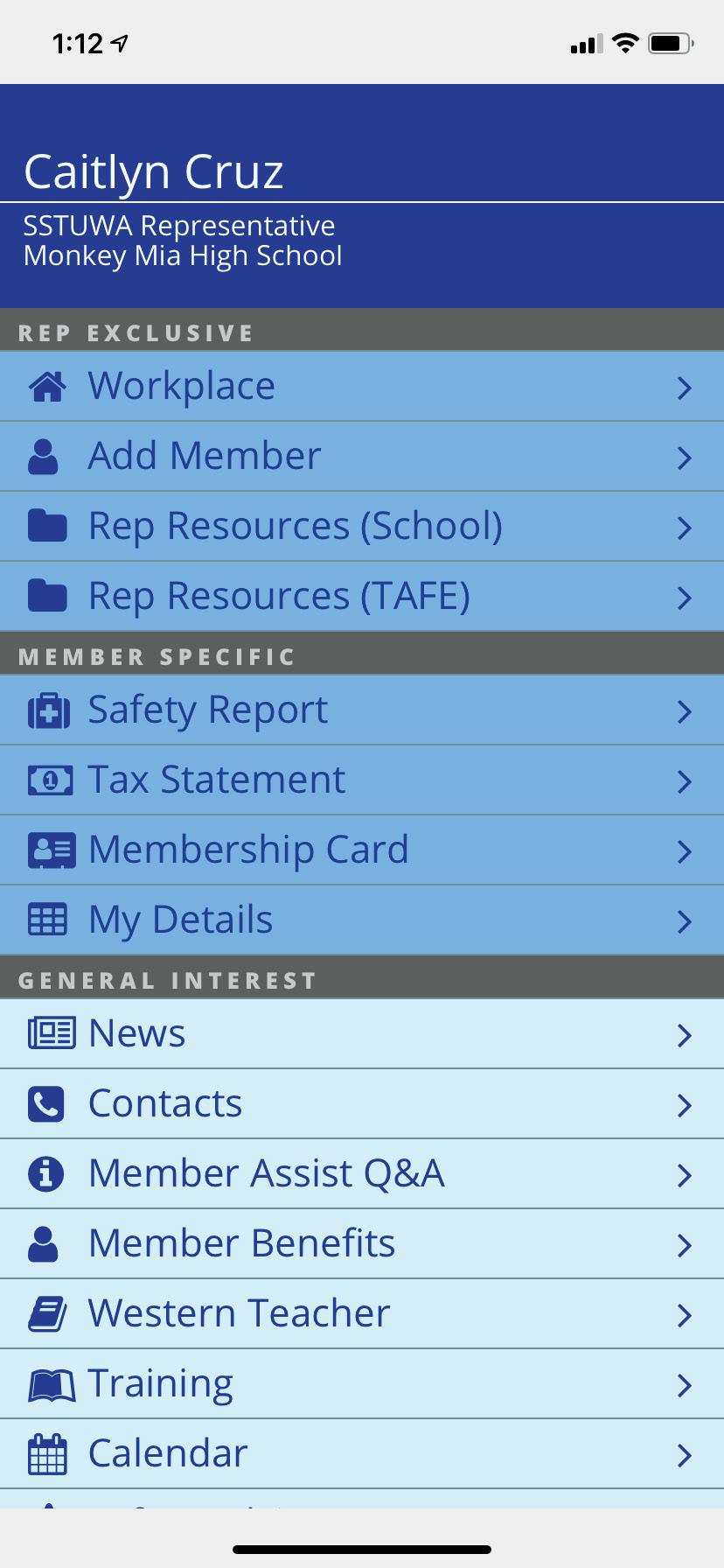






Please

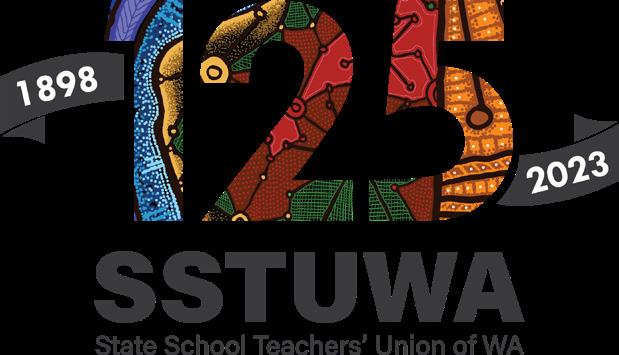

At the start of each year, union members at your worksite should meet to organise your branch of the SSTUWA. It is generally the responsibility of the previous year’s union representative to arrange this meeting. The rep (or other member) should use the information in this document to build the worksite branch for 2023.
1) Set up the union noticeboard.
2) Arrange to convene the initial union meeting, preferably during week one or two of 2023, or arrange to hold a ballot via email. (Note: all union members must be informed.)
Materials for meeting:
• The Nominations for branch office bearers form.
• Membership list.
• Getting Organised 2023 (this document).
• Agenda, venue and time.
These materials were posted to your worksite, attention of the SSTUWA representative, and the forms are also available online at sstuwa.org.au/go23
Conduct elections for branch positions and record the results on the Nominations for branch office bearers form. Refer to the box on the right of this page for role descriptors. The SSTUWA rules allow for one branch member per position, for all positions.
• Union rep
• Deputy union rep
• Treasurer
• Secretary
• Women’s contact officer

• District Council delegate

• Agree on the regularity and forms of communication for union-related information within your worksite.
• Agree on and diarise future union meeting dates for the year. Check your worksite’s planner to minimise clashes.
• Delegate a union noticeboard keeper.
It is important to have elected health and safety reps (HSRs) to represent staff for work health and safety matters. The new Work Health and Safety Act 2020 (WA) has changed the way elections for HSRs occur. See the Q&A on page 18 of this document for further information.
Ensure your workplace has elected HSRs and advise the SSTUWA of the result of the election/s via the HSR update form included in your worksite’s Getting Organised pack and available online at sstuwa.org.au/go23
The SSTUWA can provide support for HSR elections if required.
Important jobs to do as the 2023 union rep and/or deputy union rep:
1) Return the Nominations for branch office bearers form to the union office. You must return this form every school year. We recommend you return this form by Friday 3 March. You may also submit this form electronically via sstuwa.org.au/go23
2) Review and update your membership list, and email the amended list to membership@sstuwa.org.au
3) Meet with your worksite’s leader to:
• Advise the leader of the union branch officers election outcome.
• Raise, discuss and/or negotiate any immediate union member issues.
• Schedule future meeting times for each term. (A minimum of two is suggested.)
• Seek an agreement for union rep time.
4) Contact your district organiser at the SSTUWA to touch base: call or email the office on (08) 9210 6000 or contact@sstuwa.org.au
Introduce yourself, outline your worksite issues, and/or invite your SSTUWA district organiser to visit your workplace.
5) Most importantly, register for union delegate training. Visit the training tab at sstuwa.org.au or call the Education and Training Centre on (08) 9210 6035.
The union rep is elected to represent the interests of all members in the workplace. The role of the union rep is explored in union rep training offered each term by our Education and Training Centre.
The deputy union rep is elected to be in a position to fill the union rep role should it be necessary. Their main role is to assist the union rep in representing the interests of their members. The deputy union rep can also attend training offered each term by our Education and Training Centre.
The treasurer is responsible for claiming branch operating expenses. They should complete the branch financial return form that was included in the info pack posted to your worksite (also available online at sstuwa.org.au/go23)
Teachers Mutual Bank can establish an operating account for your branch with no account keeping fees. Call (08) 9421 8701 and visit tmbank.com.au
The secretary works with the union rep to distribute information to the members at the worksite. They also record the items discussed at branch meetings and the outcomes/actions agreed to be taken by the branch.
The women’s contact officer works in conjunction with the union rep to encourage women’s involvement in union structures, disseminate information about women’s issues and gender equity, promote women’s issues, and provide opportunities for women’s voices to be heard.
The District Council delegate represents the branch at District Council meetings to ensure the branch has a voice within the wider union. They then share the information that they received with the branch upon their return.
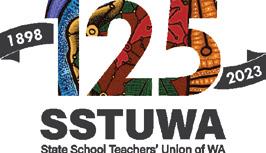



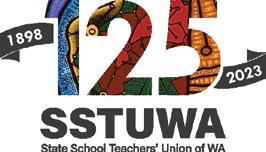

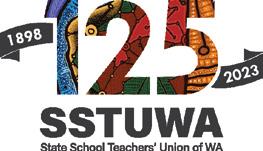


Union reps play a vital leadership role at the workplace. The union rep is often the first point of contact for members in schools and TAFE colleges seeking information or advice about their working conditions or entitlements.
On receipt of the Nominations for branch office bearers form the SSTUWA will mail a branch kit to your worksite’s elected representative. This introductory kit will enable the rep to establish themself in the workplace.
Teachers Award 1993 Clause 62
62.
(1) The Employer recognises the rights of the SSTUWA and PFWA to organise and represent its members.
(2) The Employer will recognise SSTUWA representatives and the members of the PFWA Council as the representatives of the PFWA and will allow them to carry out their roles and functions.
(3) SSTUWA representatives in the Department have a legitimate role and function in assisting the SSTUWA in the tasks of recruitment, organising, communication and representing members’ interests in the workplace, Department and SSTUWA branch.
(4) The Employer recognises that, under the SSTUWA’s rules, SSTUWA representatives are members of a branch representing members within a SSTUWA electorate. A SSTUWA branch may cover more than one workplace.
(5) The SSTUWA will advise the Employer in writing of the names of the SSTUWA representatives in the Department.
(6) The Employer must recognise the authorisation of each the SSTUWA and PFWA representatives in the Department and must provide them with the following.
(a) Paid time off from normal duties to perform their functions as a Union representative such as organising, recruiting, individual grievance handling, collective bargaining, involvement in the branch and to attend Union business in accordance with this clause and the Department’s Industrial Relations Advice 6 of 2009. The Department will consult with the Unions regarding any proposed changes to this Industrial Relations Advice.
(b) Access to facilities required for the purpose of carrying out their duties. Facilities may include but not be limited to, the use of filing cabinets, meeting rooms, telephones, fax, email, internet, photocopiers and stationery. Such access to facilities must not unreasonably affect the
operation of the organisation and is in accordance with normal Departmental protocols.
(c) A noticeboard for the display of Union materials including broadcast email facilities.
(d) Paid access to periods of leave for the purpose of attending Union training courses in accordance with Clause 63. – Leave to Attend Union Business of the Award. Country representatives will be provided with appropriate travel time.
(e) Notification of the commencement of new employees, and as part of their induction, time to discuss the benefits of Union membership with them.
(f) Access to awards, agreements, policies and procedures.
(g) The names of any Equal Employment Opportunity and Occupational Health, Safety and Welfare representatives.

(7) The Employer recognises that it is paramount that Union representatives in the workplace are not threatened or disadvantaged in any way as a result of their role as a Union representative.
To ensure the Department of Education meets its obligations under the terms of the Award, the department and the SSTUWA agree that the table below will be used as a guide when allocating paid time off for union representatives to perform their duties.
Refer to Industrial Relations Advice Number 12 of 2022 for full details.
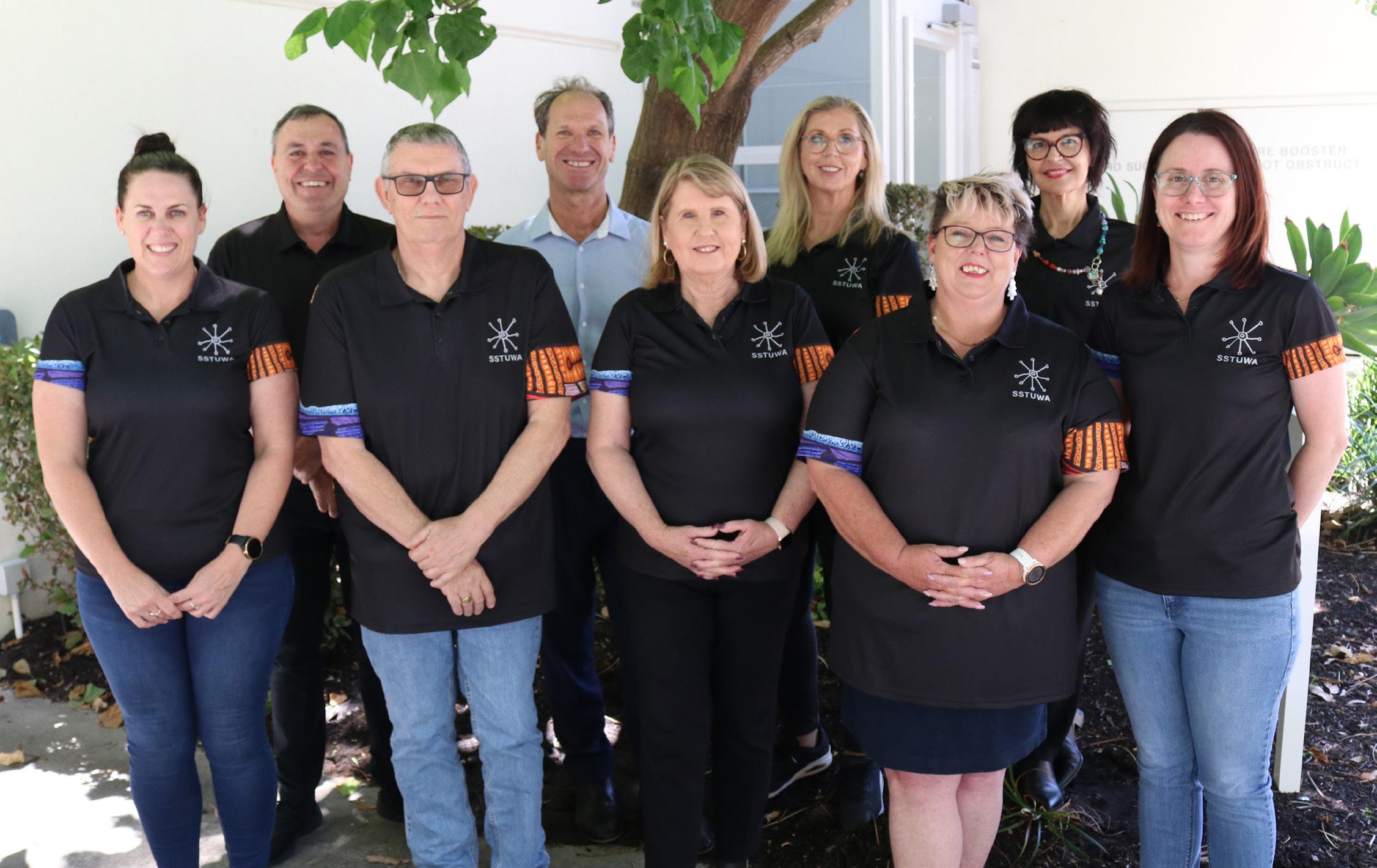
1 The Managing Directors recognise the rights of the Union to organise and represent its members. Union representatives in Colleges have a legitimate role and function in assisting the Union in the tasks of recruitment, organising, communication and representing members’ interests in the workplace, at the College and on Union committees.
2 The Managing Directors recognises that, under the Union’s rules, Union representatives represent members in a branch, which may cover one or more workplaces or may cover part of a workplace.
3 The Managing Directors recognises that, under the Union’s rules, a TAFE Committee representative represents members in a branch at the TAFE Committee.
4 The Managing Directors will recognise Union representatives in Colleges and will allow them to carry out their role and functions.
5 The Union will advise the employer in writing of the names of the Union representatives in the College.
6 The Managing Directors shall recognise the authorisation of each Union representative in the College and shall provide them with the following:
a) Paid time off from normal duties to perform their functions as a Union representative such as organising, recruiting, individual grievance handling, collective bargaining, involvement on Union committees and to
attend Union business in accordance with Clause 71Leave to Attend Union Business of this Agreement.
b) Access to facilities required for the purpose of carrying out their duties. Facilities may include but not be limited to, the use of filing cabinets, meeting rooms, telephones, fax, email, internet, photocopiers and stationery. Such access to facilities shall not unreasonably affect the operation of the organisation and shall be in accordance with normal College protocols.
c) A noticeboard for the display of Union materials including broadcast email facilities.
d) Paid access to periods of leave for the purpose of attending Union training courses in accordance with Clause 72 - Trade Union Training Leave of this Agreement. Country representatives will be provided with appropriate travel time.
e) Notification of the commencement of new employees, and as part of their induction, provide time for the Union representative to discuss the benefits of Union membership with them.
f) Access to awards, agreements, policies and procedures.
g) Access to information on matters affecting employees in accordance with Clause 11 – College Consultation and Clause 14 – Notification of Change of this Agreement.
h) The names of any Equal Employment Opportunity and Safety and Health representatives.
7 The employer recognises that it is paramount that Union representatives in the workplace are not threatened or disadvantaged in any way as a result of their role as a Union representative.

2023 SSTUWA State Council/AEU WA Branch Council dates: 9-10 June and 10-11 November
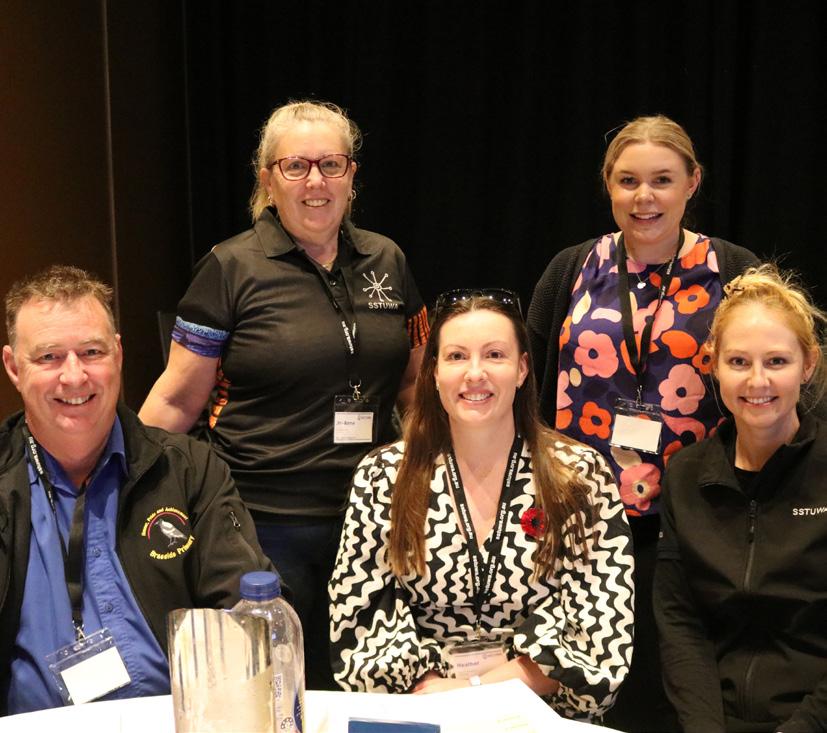
Any member may nominate as a delegate to State Council Conference. Such delegates represent the district.
Branches are not required to endorse nominations; however, it is in the interests of the branches to encourage members of their branch to nominate to ensure branch views are heard.
Branches may forward motions to State Council Conference. Closing dates for motions to State Council Conference is determined by Executive and published in the Western Teacher.
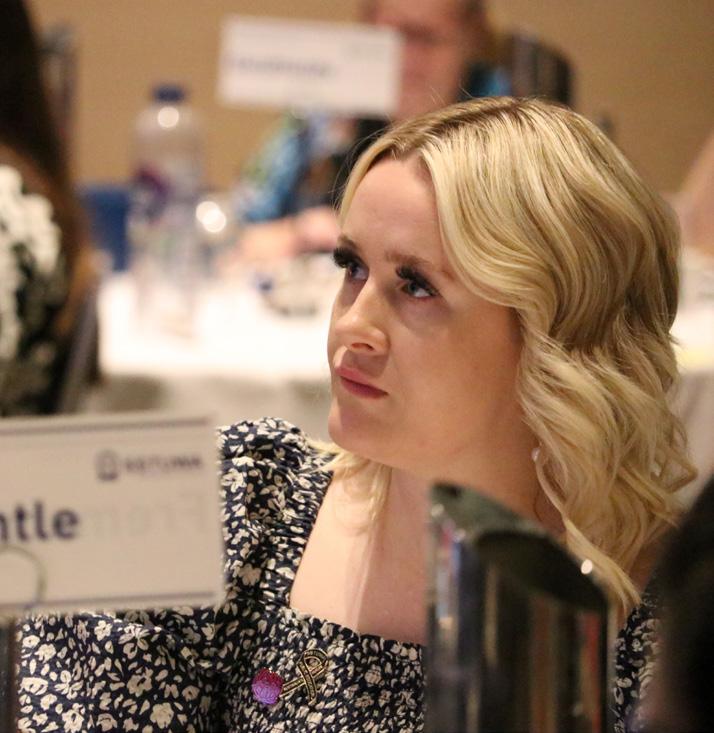
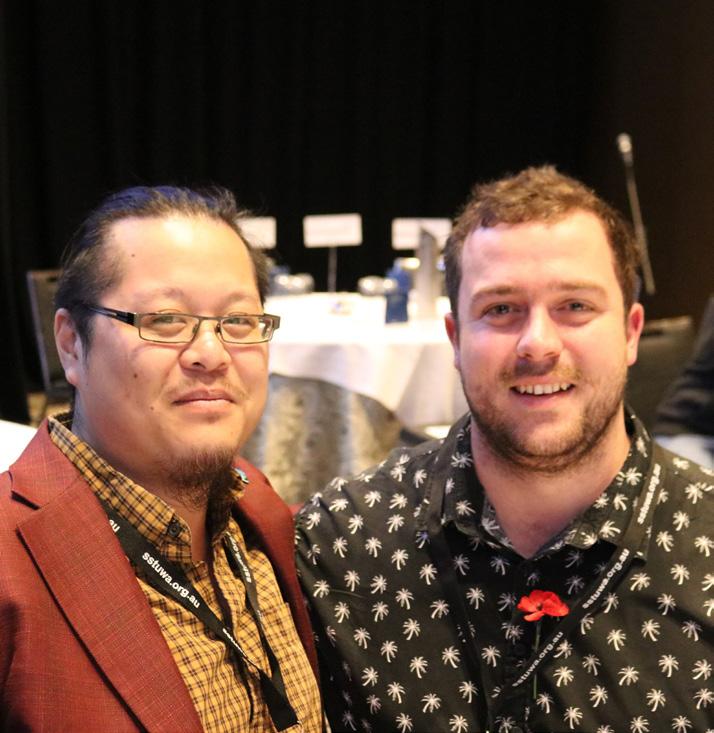
State Council is held twice a year in Term 2 and Term 4.
The decision making structures of the SSTUWA and the AEU WA Branch now reflect each other.
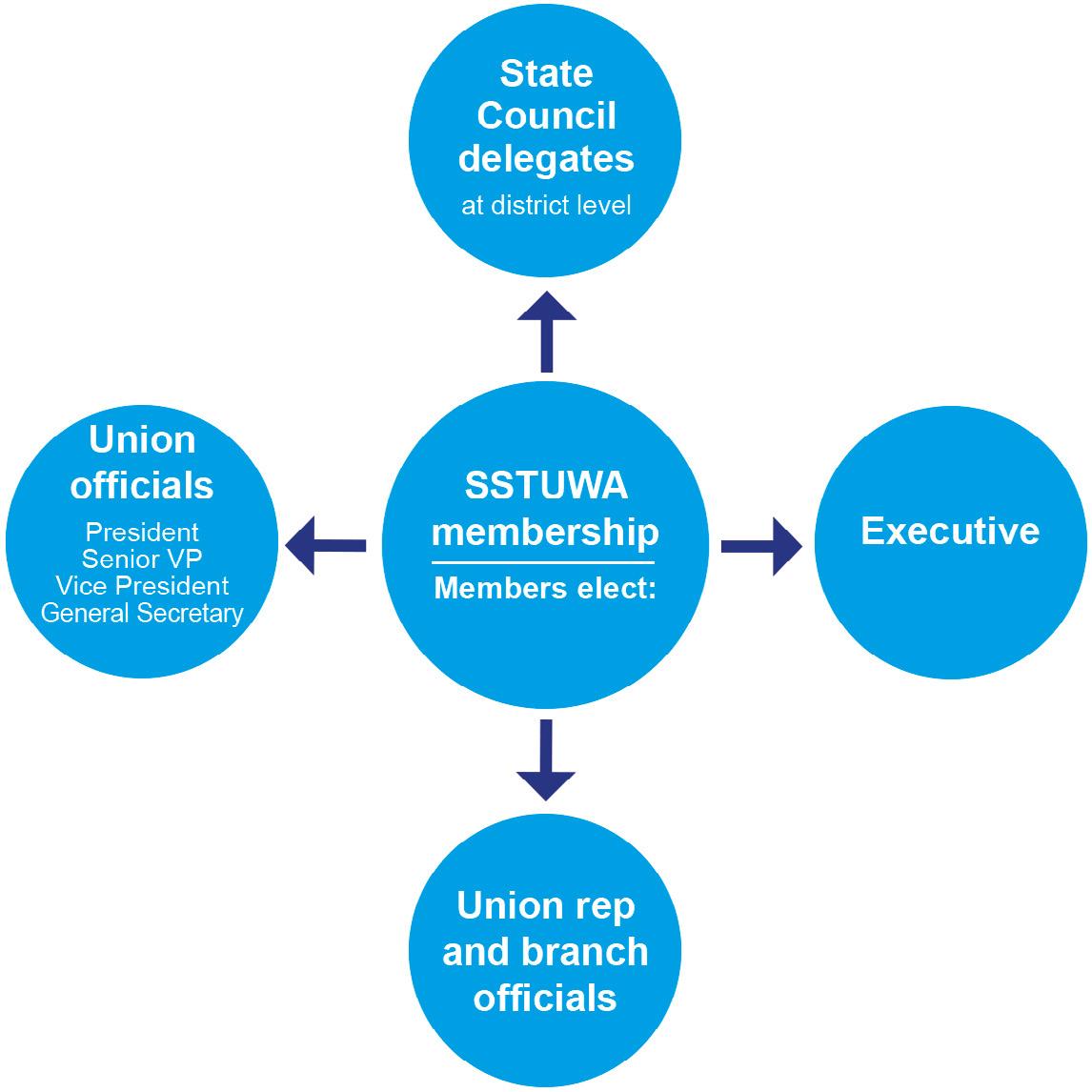
Persons elected to the AEU WA Branch Senior Officer, Executive and Branch Council positions are deemed to be elected to the corresponding positions within the SSTUWA.
For State Council Conference delegates, the equivalent position in the AEU WA Branch is Branch Councillor. Delegates elected as AEU WA Branch Councillors will be deemed to be SSTUWA State Council Conference delegates.
Elections will be conducted by the Australian Electoral Commission (AEC) in accordance with the rules of the AEU WA Branch.
Please refer to the election notice on page seven of this document. Nomination forms are also available from the AEC, the SSTUWA office and the SSTUWA website at sstuwa.org.au/go23
It is important to remember that nominees and their proposers and seconders must be financial members of the SSTUWA and attached to the district for which representation is being sought. It is therefore critical that prospective candidates are aware of which district they belong to.
A list of districts together with the worksites contained within each state electorate may be found on pages 9 – 15 of this document.
Some districts changed at the start of 2019 due to a realignment of state electoral boundaries. In some instances electorate names have remained but boundaries have changed. Members are advised to check the list of worksites to determine their district, and to be aware that it may have changed.
The foundation of the SSTUWA is you – the membership.

Australian Education Union (AEU) Western Australian Branch ELECTION NOTICE - E2022/141
Nominations are called for:
Election Fair Work (Registered Organisations) Act 2009
Members of Branch Council* from the following Districts:
Belmont (7)
Bunbury (9)
Butler (9)
Fremantle (8) Goldfields (7) Hillarys (11)
Jandakot (10)
Kalamunda (10)
Kimberley-Pilbara (12) Maylands (7)
Moore (9) Morley (7) Murray (8) Perth (9) Riverton (10) Rockingham (14) Scarborough (7) Stirling (7) Swan (9) Victoria Park (7)
*Note: In accordance with WA Federal Branch Rules 9(2)-(3): • “Where sufficient nominations have been received from women financial members, at least fifty per cent of Branch Councillors shall be women”; and • “Where fewer than the number of nominations required to enable subrule (2) above to be complied with are received from women, any woman who so nominated shall be declared elected”.
Nominations, which must be in writing and comply with the registered rules of the Organisation, may be made at any time from 27/01/2023.
Additional forms are available from the Returning Officer.
Prospective candidates and nominators should verify their financial status and any other qualifications required by the Organisation's rules prior to lodging nominations.
Nominations must reach the Returning Officer via the lodgement method(s) stipulated below not later than 12:00pm Australian Western Standard Time (AWST) on 10/02/2023.
*Refer to sstuwa.org.au/go23 for the notes accompanying the election notice, including lodgement instructions (page 2 of 2).
Australian Education Union (AEU) – Western Australian Branch Scheduled Election E2022/141

CANDIDATE:
Full Name (Print clearly) Membership Number: (Print clearly) For the office of:
Location: (District)
Name for ballot paper: Print your name as you wish it to appear on the ballot paper
Nominator/s (at least two (2) financial members of the Branch) I/We, the undersigned members of the AEU - Western Australian Branch, nominate the person named above:
Full Name (Print clearly)
Membership Number SIGNATURE DATE _ / __ /___ _ /_ _ /____ _ /_ _ /____
I, ____________________________________________________(print your name) consent to the nomination for the above office. I declare that I am eligible under the rules and am not disqualified from being a candidate [see Chapter 7, Part 4 of the Fair Work (Regis tered Organisations) Act 2009 ]. Please indicate preferred title e.g. Mr, Mrs, Miss, Ms ______
Personal email: _________________________________________________________________ (AEC ’s preferred method of communication)
Address: Phone: Signed: _/_ _/_ Please see instructions on the next page *Refer to sstuwa.org.au/go23 for the instructions accompanying the nomination form
Find your SSTUWA/AEU WA Branch district below by locating the electorate of your workplace. (Casual members should locate the electorate of their home address.) Ensure you nominate for the correct district by also locating your workplace within the list on pages 10-15.
Every school/college has a designated organiser to support union reps and members with managing school/branch matters. Find your district’s organiser below.
District 1 - Belmont
Electorates: Bassendean, Belmont, Forrestfield Union organiser: Joe Isaia
District 2 - Bunbury
Electorates: Bunbury, Collie-Preston, Vasse Union organiser: Joe Isaia
District 3 - Butler
Electorates: Burns Beach, Butler, Joondalup Union organiser: Cherry Bogunovich
District 4 - Fremantle
Electorates: Bicton, Fremantle, Willagee Union organiser: Ian Daw
District 5 - Goldfields
Electorates: Kalgoorlie (CM), Roe (VT & ID)
Union organisers: Ian Daw (ID), Cat Mason (CM), Vicki Turner (VT)
District 6 - Hillarys
Electorates: Hillarys, Kingsley, Wanneroo Union organiser: Cherry Bogunovich
District 7 - Jandakot
Electorates: Cockburn, Jandakot, Southern River Union organiser: Ian Daw
District 8 - Kalamunda
Electorates: Armadale (ME), Darling Range (ME), Kalamunda (JI) Union organisers: Joe Isaia (JI) and Marie-Louise Earle-Sadler (ME)
District 9 - Kimberley-Pilbara
Electorates: Kimberley (FH), North West Central (SD, FH & CM), Pilbara (CM)
Union organisers: Sally Dennis (SD), Frank Herzog (FH), Cat Mason (CM)
District 10 - Maylands
Electorates: Balcatta, Maylands, Mount Lawley Union organiser: Sally Dennis
District 11 - Moore
Electorates: Central Wheatbelt (ME), Geraldton (SD), Moore (SD & ME) Union organisers: Sally Dennis (SD), Marie-Louise Earle-Sadler (ME)
District 12 -

Electorates: Landsdale, Mirrabooka, Morley Union organiser: Vicki Turner
District 13 - Murray
Electorates: Dawesville, Mandurah, Murray-Wellington Union organiser: Sally Dennis
District 14 - Perth
Electorates: Cottesloe, Nedlands, Perth Union organiser: Vicki Turner
District 15 - Riverton
Electorates: Bateman, Riverton, Thornlie Union organiser: Sally Dennis
District 16 - Rockingham
Electorates: Baldivis, Kwinana, Rockingham, Warnbro Union organisers: Marie-Louise Earle-Sadler
District 17 - Scarborough
Electorates: Carine, Churchlands, Scarborough Union organiser: Vicki Turner
District 18 - Stirling
Electorates: Albany, WarrenBlackwood Union organiser: Ian Daw
District 19 - Swan Electorates: Midland, Swan Hills, West Swan Union organiser: Joe Isaia
District 20 - Victoria Park
Electorates: Cannington, South Perth, Victoria Park Union organiser: Ian Daw
School leaders
Electorates: State-wide Union organiser: David Lee
TAFE
Electorates: State-wide Union organiser: Ramona Mitussis
Contact your SSTUWA district organiser: 9210 6000 | contact@sstuwa.org.au
Electorates: Bassendean, Belmont, Forrestfield
Bassendean
Anzac Terrace Primary School
Ashfield Primary School
Bassendean Primary School
Beechboro Primary School
Cyril Jackson Senior Campus
Cyril Jackson Senior Campus ESC
East Beechboro Primary School
Eden Hill Primary School
Hampton Senior High School
Kiara College
Lockridge Primary School
Reid Street Engagement Centre West Beechboro Primary School
Belmont
Belmay Primary School
Belmont City College
Belmont Primary School
Carlisle Primary School
Cloverdale ESC
Cloverdale Primary School
Kewdale Primary School
Redcliffe Primary School
Rivervale Primary School
South East Metropolitan Language Development Centre
Forrestfield
Darling Range Sports College
Dawson Park Primary School East Kenwick Primary School
Edney Primary School
Forrestfield Primary School High Wycombe Primary School
Kenwick School
Maida Vale Primary School Wattle Grove Primary School Woodlupine Primary School
Electorates: Bunbury, Collie-Preston, Vasse
Bunbury
Adam Road Primary School
Bunbury Primary School
Bunbury Senior High School
Carey Park Primary School
College Row School
Cooinda Primary School
Dalyellup College
Dalyellup Primary School
Djidi Djidi Aboriginal School
Greater Bunbury Engagement Centre
Maidens Park Primary School
Manea Senior College
Newton Moore ESC
Newton Moore Senior High School
Picton Primary School
South Bunbury ESC
South Bunbury Primary School
South Regional TAFE - Bunbury
Southwest Regional Education Office
Tuart Forest Primary School
Collie-Preston
Allanson Primary School
Amaroo Primary School
Australind Primary School
Australind Senior High School
Boyanup Primary School
Capel Primary School
Clifton Park Primary School
Collie Senior High School
Dardanup Primary School
Donnybrook District High School
Eaton Community College
Eaton Primary School
Fairview Primary School
Glen Huon Primary School
Kirup Primary School
River Valley Primary School
South Regional TAFE - Collie Treendale Primary School
Wilson Park Primary School
Vasse Busselton Primary School
Busselton Senior High School Cape Naturaliste College
Cowaramup Primary School
Dunsborough Primary School
Geographe ESC

Geographe Primary School
South Regional TAFE - Busselton Vasse Primary School
West Busselton Primary School
District 3 – Butler
Electorates: Burns Beach, Butler, Joondalup
Burns Beach Primary School
Clarkson Community High School
Clarkson Primary School
Currambine Primary School
Kinross College Kinross Primary School
Mindarie Primary School
Mindarie Senior College
North Metropolitan TAFE - Clarkson Quinns Beach Primary School
Quinns Rocks Primary School
Somerly Primary School
Alkimos Beach Primary School
Alkimos College
Alkimos Primary School
Butler College
Butler Primary School
East Butler Primary School John Butler Primary College Merriwa ESC
Merriwa Primary School
Shorehaven Primary School
Two Rocks Primary School Yanchep Beach Primary School
Yanchep Lagoon Primary School
Yanchep Rise Primary School
Yanchep Secondary College
Beaumaris Primary School
Clarkson Engagement Centre
Connolly Primary School
Eddystone Primary School
Edgewater Primary School
Heathridge Primary School
Joondalup ESC
Joondalup Primary School
North Metropolitan TAFE - Kendrew
North Metropolitan TAFE - McLarty
Ocean Reef Primary School
Ocean Reef Senior High School
Poseidon Primary School
District 4 – Fremantle
Electorates: Bicton, Fremantle, Willagee
Bicton
Attadale Primary School
Bicton Primary School
Melville Primary School
Melville Senior High School
Palmyra Primary School
Richmond Primary School
Fremantle
Beaconsfield Primary School
East Fremantle Primary School
East Hamilton Hill Primary School
Fremantle College
Fremantle Primary School
Hilton Primary School
John Curtin College Of The Arts
Phoenix Primary School
South Metro Education Regional Office
South Metropolitan TAFE - Beaconsfield
South Metropolitan TAFE - Maritime
Southwell Primary School
Spearwood Primary School
White Gum Valley Primary School
Winterfold Primary School
Bibra Lake Primary School
Caralee Community School
Coolbellup Community School
Coolbellup Learning Centre
Fremantle Language Development Centre
Lakeland Senior High School
Newton Primary School
North Lake Senior Campus
Samson Primary School
South Lake Primary School
South Metropolitan TAFE - Murdoch
Spearwood Alternative School
District 5 – Goldfields
Electorates: Kalgoorlie, Roe
Boulder Primary School
Central Regional TAFE - Kalgoorlie
Coolgardie Primary School
East Kalgoorlie Primary School
Eastern Goldfields College
Eastern Goldfields ESC
Goldfields Education Regional Office
Goldfields Engagement Centre
Hannans Primary School
Kalgoorlie Primary School
Kalgoorlie School of The Air
Kalgoorlie-Boulder Community High School
Kambalda Primary School
Kambalda West District High School
Laverton School
Leinster Community School
Leonora District High School
Menzies Community School
Mount Margaret Remote Community School
Norseman District High School
North Kalgoorlie Primary School
O’Connor ESC
O’Connor Primary School
South Kalgoorlie Primary School
Tjuntjuntjara Remote Community School
Roe
Borden Primary School
Braeside Primary School
Bremer Bay Primary School
Broomehill Primary School
Cascade Primary School
Castletown Primary School
Condingup Primary School
Cranbrook Primary School
Darkan Primary School
Dumbleyung Primary School
East Narrogin Primary School
Esperance ESC
Esperance Local Education Office
Esperance Primary School
Esperance Senior High School
Frankland River Primary School
Gairdner Primary School
Gnowangerup District High School
Hopetoun Primary School
Jerdacuttup Primary School
Jerramungup District High School
Katanning Primary School
Katanning Senior High School
Kojonup District High School
Kukerin Primary School
Lake Grace District High School
Lake King Primary School
Munglinup Primary School
Narrogin Local Education Office
Narrogin Primary School
Narrogin Senior High School
Newdegate Primary School
Nulsen Primary School
Nyabing Primary School
Ongerup Primary School
Pingrup Primary School
Ravensthorpe District High School
Salmon Gums Primary School
Scaddan Primary School
South Regional TAFE - Esperance South Regional TAFE - Katanning
South Regional TAFE - Narrogin
Tambellup Primary School
WA College of Agriculture - Narrogin
Wagin District High School
Williams Primary School Woodanilling Primary School
District 6 – Hillarys
Electorates: Hillarys, Kingsley, Wanneroo
Bambara Primary School
Beldon ESC
Beldon Primary School
Belridge Secondary College Belridge Secondary ESC
Craigie Heights Primary School
Early Childhood Education
Hillarys Primary School Midland Learning Academy Mullaloo Beach Primary School Mullaloo Heights Primary School Padbury Primary School
School of Special Education Needs: Behaviour and Engagement School of Special Education Needs: Disability School of Special Education Needs: Sensory

South Padbury Primary School
Springfield Primary School Statewide Services Centre West Coast Language Development Centre
Creaney ESC
Creaney Primary School
Dalmain Primary School East Hamersley Primary School Glendale Primary School Goollelal Primary School Greenwood College Greenwood Primary School Halidon Primary School Hawker Park Primary School North Woodvale Primary School
Warwick Senior High School West Coast Secondary ESC West Greenwood Primary School Woodvale Primary School Woodvale Secondary College
Wanneroo
Banksia Grove Primary School
Carramar Primary School
East Wanneroo Primary School
Grandis Primary School
Joseph Banks Secondary College Spring Hill Primary School
Tapping Primary School
Wanneroo Primary School
Wanneroo Secondary College
District 7 – Jandakot
Electorates: Cockburn, Jandakot, Southern River
Cockburn
Atwell College
Atwell Primary School
Beeliar Primary School
Coogee Primary School
Harmony Primary School
Jandakot Primary School
South Coogee Primary School
South Metropolitan TAFE - Munster
Success Primary School
Yangebup Primary School
Jandakot
Aspiri Primary School
Canning Vale ESC
Canning Vale Primary School
Forrestdale Primary School
Harrisdale Primary School
Harrisdale Senior High School
Leeming Primary School
Leeming Senior High School
Leeming Senior High School ESC
North Harrisdale Primary School
Piara Waters Primary School
Piara Waters Senior High School
Ranford Primary School
Riva Primary School
South Metropolitan TAFE - Jandakot
Treeby Primary School
West Leeming Primary School
Southern River
Ashburton Drive Primary School
Bletchley Park Primary School
Caladenia Primary School
Campbell Primary School
Canning Vale College
Excelsior Primary School
Huntingdale Primary School
Seaforth Primary School
Southern Grove Primary School
Southern River College
Wirrabirra ESC
Wirrabirra Primary School
Yarralinka Primary School
District 8 – Kalamunda
Electorates: Armadale, Darling Range, Kalamunda
Armadale
Armadale ESC
Armadale Senior High School
Cecil Andrews College
Challis Community Primary School
Grovelands Primary School
Gwynne Park ESC
Gwynne Park Primary School
Kelmscott Senior High School
Kingsley Primary School
Neerigen Brook Primary School
Seville Drive Engagement Centre
South Metropolitan TAFE - Armadale Westfield Park Primary School
Willandra Primary School
Armadale Primary School
Beenyup Primary School
Byford Primary School
Byford Secondary College
Clifton Hills Primary School
Jarrahdale Primary School
Kelmscott Primary School
Marri Grove Primary School
Mundijong Primary School
Roleystone Community College
Serpentine Primary School
West Byford Primary School Woodland Grove Primary School
Kalamunda
Darlington Primary School
Falls Road Primary School
Glen Forrest Primary School
Gooseberry Hill Primary School
Kalamunda Primary ESC
Kalamunda Primary School
Kalamunda Secondary ESC
Kalamunda Senior High School
Lesmurdie Primary School
Lesmurdie Senior High School
Mundaring Primary School
Orange Grove Primary School
Parkerville Primary School
Pickering Brook Primary School Walliston Primary School
District 9 – Kimberley-Pilbara
Electorates: Kimberley, North West Central, Pilbara
Kimberley
Bayulu Remote Community School
Broome North Primary School
Broome Primary School
Broome Senior High School
Cable Beach Primary School
Dawul Remote Community School
Derby District High School
Djugerari Remote Community School
East Kimberley College
Fitzroy Valley District High School
Halls Creek District High School
Jungdranung Remote Community School
Kalumburu Remote Community School
Kimberley Education Regional Office
Kimberley Engagement Centre
Kimberley School of The Air
La Grange Remote Community School
Looma Remote Community School
Muludja Remote Community School
Ngalapita Remote Community School
North Regional TAFE - Broome
North Regional TAFE - Derby
North Regional TAFE - Halls Creek
North Regional TAFE - Kununurra
North Regional TAFE - Wyndham
One Arm Point Remote Community School
Roebuck Primary School
Wananami Remote Community School
Wangkatjungka Remote Community School
Wyndham District High School
North West Central Blackstone Campus (Ngaanyatjarra Lands School)
Burringurrah Remote Community School
Carnarvon Community College
Carnarvon School Of The Air
Central Regional TAFE - Carnarvon Cue Primary School
Exmouth District High School
Gascoyne Junction Remote Community School
Jameson Campus (Ngaanyatjarra Lands School)
Kalbarri District High School
Kiwirrkurra Campus (Ngaanyatjarra Lands School)
Meekatharra District High School
Mount Magnet District High School
Ngaanyatjarra Lands School
North Tom Price Primary School
Onslow Primary School
Pannawonica Primary School
Paraburdoo Primary School
Pia Wadjarri Remote Community School
Shark Bay School
Tjirrkarli Campus (Ngaanyatjarra Lands School)
Tjukurla Campus (Ngaanyatjarra Lands School)
Tom Price Primary School
Tom Price Senior High School
Useless Loop Primary School Wanarn Campus (Ngaanyatjarra Lands School)
Warakurna Campus (Ngaanyatjarra Lands School)
Warburton Campus (Ngaanyatjarra Lands School)
Wiluna Remote Community School Wingellina Campus (Ngaanyatjarra Lands School)
Yalgoo Primary School
Yulga Jinna Remote Community School
Baler Primary School
Baynton West Primary School
Cassia ESC
Cassia Primary School
Christmas Island District High School
Cocos Islands District High School
Dampier Primary School
Hedland Senior High School
Jigalong Remote Community School
Karratha Primary School
Karratha Senior High School
Marble Bar Primary School
Millars Well Primary School
Newman Primary School
Newman Senior High School
North Regional TAFE - Karratha
North Regional TAFE - Newman
North Regional TAFE - Pundulmurra
Nullagine Primary School
Pegs Creek Primary School
Pilbara Education Regional Office
Pilbara Engagement Centre
Port Hedland Primary School
Port Hedland School Of The Air
Roebourne District High School
South Hedland Primary School
South Newman Primary School
Tambrey Primary School
Wickham Primary School
Yandeyarra Remote Community School
Electorates: Balcatta, Maylands, Mount Lawley
Balcatta Primary School
Balcatta Senior High School
North Metropolitan Education Regional Office
Osborne Primary School
Takari Primary School
Tuart Hill Primary School
West Balcatta Primary School
Westminster ESC Westminster Primary School
Bayswater Primary School
Durham Road School
Embleton Primary School
Hillcrest Primary School
Inglewood Primary School
Instrumental Music School Services

John Forrest Secondary College
Maylands Peninsula Primary School
Coolbinia Primary School
Mount Lawley Primary School
Mount Lawley Senior High School
North East Metropolitan Language Development Centre
North Metropolitan TAFE - Mount Lawley
Sir David Brand School
Sutherland Dianella Primary School
West Morley Primary School
Yokine Primary School
Electorates: Central Wheatbelt, Geraldton, Moore
Central Wheatbelt
Avonvale ESC
Avonvale Primary School
Babakin Primary School
Bakers Hill Primary School
Beacon Primary School
Bencubbin Primary School
Beverley District High School
Boddington District High School
Brookton District High School
Bruce Rock District High School
Central Regional TAFE - Merredin
Central Regional TAFE - Northam
Corrigin District High School
Cunderdin District High School
Hyden Primary School
Kellerberrin District High School
Kondinin Primary School
Koorda Primary School
Kulin District High School
Meckering Primary School
Merredin College
Moorine Rock Primary School
Mukinbudin District High School
Narembeen District High School
Northam Primary School
Northam Senior High School
Nungarin Primary School
Pingelly Primary School
Quairading District High School
Southern Cross District High School
Tammin Primary School
Trayning Primary School
WA College of Agriculture - Cunderdin
Wandering Primary School
West Northam Primary School
Wheatbelt Education Regional Office
Wheatbelt Engagement Centre
Wickepin Primary School
Wundowie Primary School
Wyalkatchem District High School
Yealering Primary School York District High School
Geraldton
Allendale Primary School
Beachlands Primary School
Bluff Point Primary School
Central Regional TAFE - Geraldton Champion Bay Senior High School
Geraldton Primary School
Geraldton Senior High School
Holland Street School
Meekatharra School Of The Air
Midwest Engagement Centre
Mount Tarcoola Primary School
Rangeway Primary School
Waggrakine Primary School
Walkaway Primary School
Wandina Primary School
Moore
Badgingarra Primary School
Bindoon Primary School
Binnu Primary School
Bolgart Primary School
Cadoux Primary School
Calingiri Primary School
Carnamah District High School
Central Midlands Senior High School
Central Regional TAFE - Moora
Cervantes Primary School
Chapman Valley Primary School
Coorow Primary School
Dalwallinu District High School
Dandaragan Primary School
Dongara District High School
Dowerin District High School
Eneabba Primary School
Gingin District High School
Goomalling Primary School
Jurien Bay District High School
Kalannie Primary School
Lancelin Primary School
Leeman Primary School
Miling Primary School
Mingenew Primary School
Moora Primary School
Morawa District High School
Mullewa District High School
Northampton District High School
Perenjori Primary School
Three Springs Primary School
Toodyay District High School
WA College of Agriculture - Morawa Watheroo Primary School
Wongan Hills District High School
Yerecoin Primary School Yuna Primary School
Electorates: Landsdale, Mirrabooka, Morley
Landsdale
Alinjarra Primary School
Ashdale Primary School
Ashdale Secondary College
Carnaby Rise Primary School
Hocking Primary School
Landsdale Gardens Primary School
Landsdale Primary School
Madeley Primary School
Pearsall Primary School
Mirrabooka
Balga Primary School
Balga Senior High School Boyare Primary School
Burbridge School
Dryandra Primary School Girrawheen Senior High School
Gladys Newton School
Hudson Park Primary School
Koondoola Primary School
Marangaroo Primary School
North Balga Primary School
North Metropolitan TAFE - Balga Rawlinson Primary School
Redcliffe Avenue Engagement Centre
Roseworth ESC
Roseworth Primary School
Waddington Primary School
Warriapendi Primary School
Westminster Junior Primary School
Camboon Primary School
Dianella Heights Primary School
Dianella Primary College
Dianella Secondary College
Dianella Secondary College ESC
Hampton Park Primary School
Morley Primary School
Morley Senior High School
Nollamara Primary School
Noranda Primary School
North Morley Primary School
Weld Square Primary School
District 13 – Murray
Electorates: Dawesville, Mandurah, Murray-Wellington

Dawesville
Dudley Park Primary School
Falcon Primary School
Glencoe Primary School
Halls Head College
Halls Head College ESC
Halls Head Primary School
Ocean Road Primary School
South Halls Head Primary School
Mandurah
Coastal Lakes College
Coodanup College
Greenfields Primary School
John Tonkin College
John Tonkin College ESC
Lakelands Primary School
Madora Bay Primary School
Mandurah Primary School
Meadow Springs ESC
Meadow Springs Primary School
North Mandurah Primary School
Oakwood Primary School
Riverside ESC Riverside Primary School
South Metropolitan TAFE - Mandurah Murray-Wellington
Brunswick Junction Primary School
Carcoola Primary School
Dwellingup Primary School
Harvey Primary School
Harvey Senior High School
Kingston Primary School
North Dandalup Primary School
Parkfield Primary School
Pinjarra Primary School
Pinjarra Senior High School
WA College of Agriculture - Harvey Waroona District High School
Yarloop Primary School
District 14 – Perth
Electorates: Cottesloe, Nedlands, Perth
Cottesloe
City Beach Primary School
Cottesloe Primary School
Freshwater Bay Primary School
Mosman Park Primary School
Mosman Park School For Deaf Children
Mount Claremont Primary School
North Cottesloe Primary School
North Fremantle Primary School
Swanbourne Primary School
Bob Hawke College
Dalkeith Primary School
Hollywood Primary School
Jolimont Primary School
Nedlands Primary School
North Metropolitan TAFE - Oral Health
Perth Modern School
Rosalie Primary School
School of Special Education Needs: Medical And Mental Health Shenton College
Shenton College Deaf Education Centre
Subiaco Primary School
Perth
Central & District Staff Head Office
Highgate Primary School
Kyilla Primary School
Mount Hawthorn ESC
Mount Hawthorn Primary School
North Metropolitan TAFE - 12 Aberdeen
North Metropolitan TAFE - 19 Aberdeen
North Metropolitan TAFE - 25 Aberdeen
North Metropolitan TAFE - 30 Aberdeen
North Metropolitan TAFE - East Perth
North Metropolitan TAFE - Leederville
North Perth Primary School School of Isolated And Distance Education
Secondary Staffing Department of Education

District 15 – Riverton
Electorates: Bateman, Riverton, Thornlie
Bateman
Applecross Primary School
Applecross Senior High School
Ardross Primary School
Bateman Primary School
Booragoon Primary School
Brentwood Primary School
Kardinya Primary School
Mount Pleasant Primary School
Winthrop Primary School
Banksia Park Primary School
Bull Creek Primary School
Burrendah Primary School
Castlereagh School
Oberthur Primary School
Riverton ESC
Riverton Primary School
Rossmoyne Primary School
Rossmoyne Senior High School
Rostrata Primary School
Shelley Primary School
Willetton Primary School
Willetton Senior High School
Thornlie
Bramfield Park Primary School
Dellar Road Engagement Centre
East Maddington Primary School
Forest Crescent Primary School
Gosnells Primary School
Maddington ESC
Maddington Primary School
South Metropolitan TAFE - Thornlie NonTrade
South Metropolitan TAFE - Thornlie Trade
South Thornlie Primary School
Thornlie Primary School
Thornlie Senior High School
Yale Primary School Yule Brook College
Electorates: Baldivis, Kwinana, Rockingham, Warnbro
Baldivis
Baldivis Gardens Primary School
Baldivis Primary School
Baldivis Secondary College
Makybe Rise Primary School
Pine View Primary School Ridge View Secondary College
Rivergums Primary School
Settlers Primary School
Sheoak Grove Primary School
Tuart Rise Primary School
Waikiki Primary School
Wellard Primary School
Wellard Village Primary School
Kwinana
Aubin Grove Primary School
Bertram Primary School
Calista Primary School
Gilmore College
Hammond Park Primary School
Hammond Park Secondary College
Honeywood Primary School
Leda ESC
Leda Primary School
Medina Primary School
North Parmelia Primary School
Orelia Primary School
South Metropolitan TAFE - Kwinana
South Metropolitan TAFE - Naval Base
Benjamin Way Engagement Centre
Bungaree Primary School
Charthouse Primary School
Cooloongup Primary School
East Waikiki Primary School
Hillman Primary School
Malibu School
Rockingham Beach ESC
Rockingham Beach Primary School
Rockingham Senior High School
Rockingham Senior High School ESC
Safety Bay Primary School
Safety Bay Senior High School
South Metropolitan TAFE - Rockingham Non-Trade
South Metropolitan TAFE - Rockingham Trade
Comet Bay College
Comet Bay Primary School
Endeavour ESC
Endeavour Primary School
Golden Bay Primary School
Koorana ESC
Koorana Primary School
Peel Language Development School
Port Kennedy Primary School
Rockingham Lakes Primary School
Secret Harbour Primary School
Singleton Primary School
Warnbro Community High School
Warnbro Community High School ESC
Warnbro Primary School
Electorates: Carine, Churchlands, Scarborough
Carine
Carine Primary School
Carine Senior High School
Davallia Primary School
Duncraig Primary School
Duncraig Senior High School
Glengarry Primary School
Karrinyup Primary School
Marmion Primary School
North Beach Primary School
Poynter Primary School
Sorrento Primary School
Churchlands
Churchlands Primary School
Churchlands Senior High School
Floreat Park Primary School
Kapinara Primary School
Lake Monger Primary School
Wembley Downs Primary School
Wembley Primary School
West Leederville Primary School
Woodlands Primary School
Scarborough
Deanmore Primary School
Doubleview Primary School
Lake Gwelup Primary School
Newborough Primary School
Scarborough Primary School
Yuluma Primary School
Electorates: Albany, Warren-Blackwood
Albany
Albany Local Education Office
Albany Primary School
Albany Secondary ESC
Albany Senior High School
Flinders Park Primary School
Great Southern Engagement Centre
Little Grove Primary School
Mount Lockyer Primary School
Mount Manypeaks Primary School
North Albany Senior High School
South Regional TAFE - Albany
South Stirling Primary School
Spencer Park ESC
Spencer Park Primary School
Wellstead Primary School
Yakamia Primary School
Warren-Blackwood
Augusta Primary School
Balingup Primary School
Boyup Brook District High School
Bridgetown High School
Bridgetown Primary School
Denmark Primary School
Denmark Senior High School
East Manjimup Primary School
Greenbushes Primary School
Karridale Primary School
Kendenup Primary School
Manjimup ESC
Manjimup Local Education Office
Manjimup Primary School
Manjimup Senior High School
Margaret River Primary School
Margaret River Senior High School
Mount Barker Community College
Nannup District High School
Northcliffe District High School
Pemberton District High School
Rapids Landing Primary School
South Regional TAFE - Denmark
South Regional TAFE - Manjimup
South Regional TAFE - Margaret River
WA College of Agriculture - Denmark
Walpole Primary School
District 19 – Swan
Electorates: Midland, Swan Hills, West Swan
Midland
Caversham Valley Primary School
Clayton View Primary School
Governor Stirling Senior High School
Greenmount Primary School
Guildford Primary School
Helena Valley Primary School
Middle Swan Primary School
Midvale Primary School
Moorditj Noongar Community College
North Metropolitan TAFE - Midland
Swan View Primary School
Swan View Senior High School
Woodbridge Primary School
Anne Hamersley Primary School
Arbor Grove Primary School
Aveley Secondary College
Bullsbrook College
Chidlow Primary School
Eastern Hills Senior High School
Ellen Stirling Primary School
Gidgegannup Primary School
Herne Hill Primary School
Malvern Springs Primary School
Mount Helena Primary School
Sawyers Valley Primary School
Upper Swan Primary School
Wooroloo Primary School
Aveley North Primary School
Aveley Primary School
Ballajura Community College
Ballajura Primary School
Brabham Primary School
Caversham Primary School
Dayton Primary School
Ellenbrook Primary School
Ellenbrook Secondary College
Illawarra Primary School
South Ballajura ESC
South Ballajura Primary School
Electorates: Cannington, South Perth, Victoria Park
Bannister Creek Primary School
Beckenham Primary School
Brookman Primary School
Cannington Community College
Cannington Community ESC
Gibbs Street Primary School
Lynwood Senior High School
Parkwood Primary School
Queens Park Primary School
Sevenoaks Senior College
South Perth
Collier Primary School
Como Primary School
Como Secondary College

Curtin Primary School
Kensington Primary School
Manning Primary School
South Perth Primary School
Bentley Primary School
Canning College
Carson Street School
East Victoria Park ESC
East Victoria Park Primary School
Kensington Secondary School
Kent Street Senior High School
Lathlain Primary School
Millen Primary School
South Metropolitan TAFE - Bentley
South Metropolitan TAFE - Carlisle
Victoria Park Primary School
Wilson Primary School
You can also find your district online. Visit sstuwa.org.au/findmydistrict
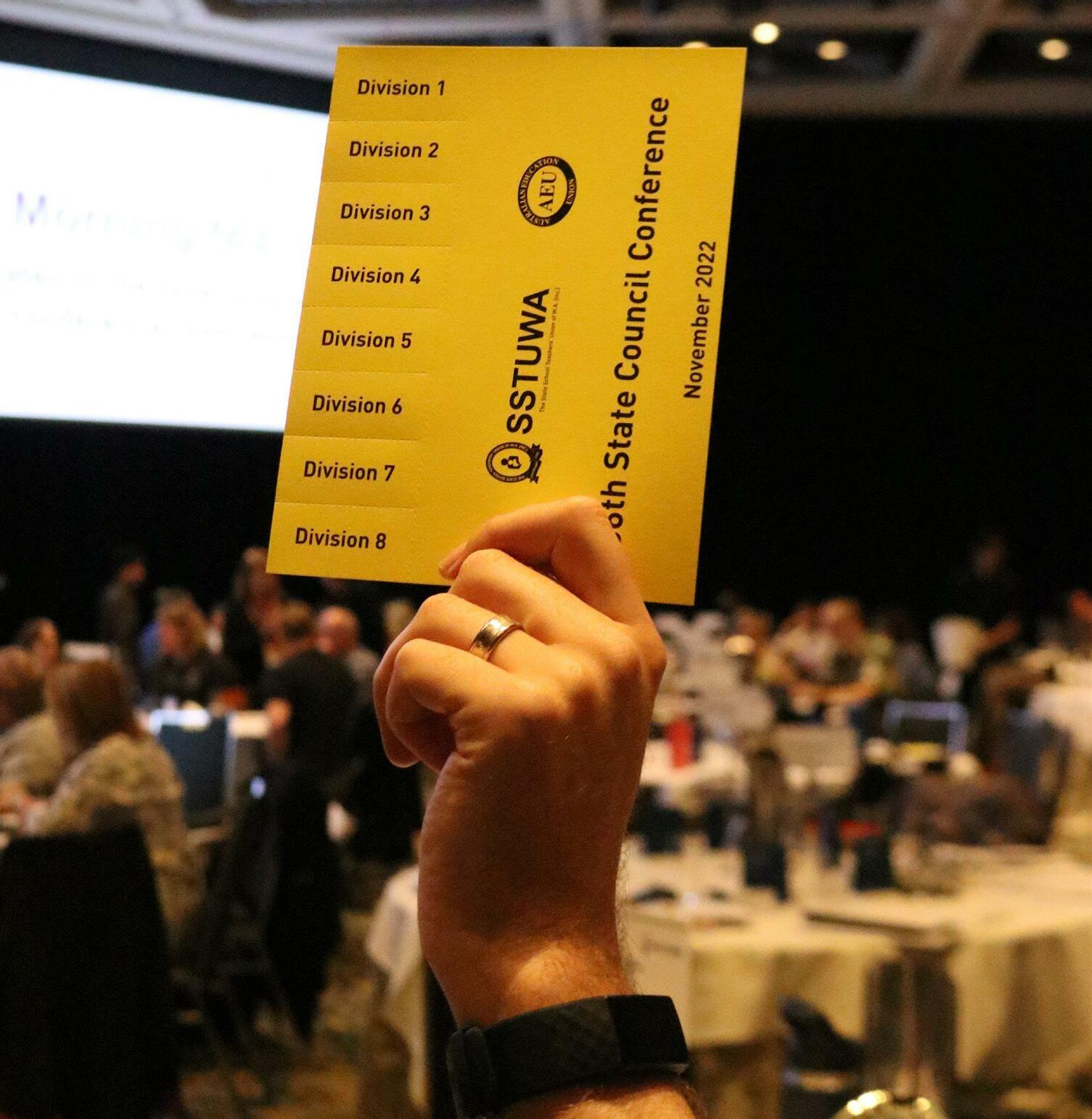
Opening date: Monday 23 January 2023
Closing date: Noon, Monday 27 February 2023
Declaration: Friday 3 March 2023
Nominations are called for the following committees:
• Aboriginal Education Committee
• Early Childhood Educators Committee
• LGBTIQ+ Committee
• New Educators Committee
• School Leaders Committee
• TAFE Committee
• Women’s Committee
Committees are restricted to a maximum of 15 people with the exception of the TAFE Committee. Nominations must be dated, signed by the nominator and seconder and bear the written consent of the nominees or his/her agent, all of whom must be financial members of the union.
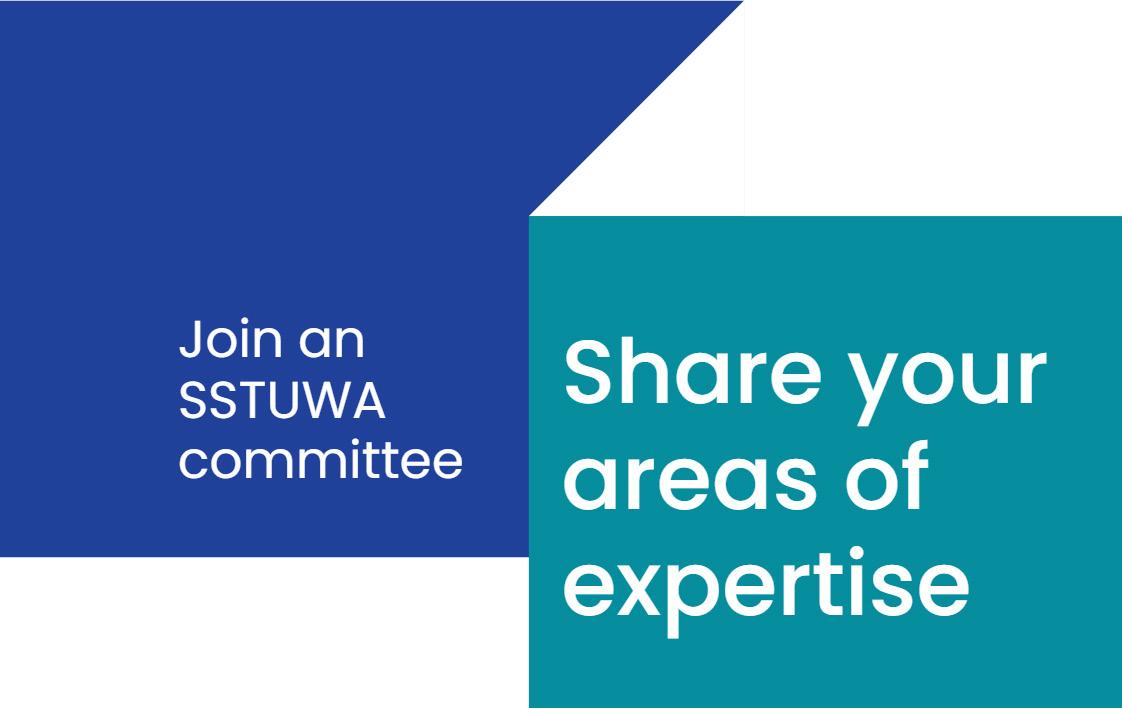
Should fewer than 15 nominations be received for a committee, Executive shall make a specific decision about whether the committee is to actually proceed.
The committees generally meet at least once a term. The term of office is 12 months and will end on completion of the 2023 committee elections. Notification of meetings is published in early 2023.
Nominations open on Monday 23 January 2023. Nominations close at noon Monday 27 February 2023. Email copies will be accepted.
TAFE Committee shall consist of members of the TAFE division, made up of TAFE Executive member/s, AEU National TAFE Council Executive member/s, and a representative from each of the TAFE branches. Note: A branch is a TAFE campus.
A branch representative for the TAFE Committee should be nominated by their TAFE branch during the first branch meeting of the calendar year, which must be held before the end of February.
Where there is only one nomination, the branch needs to endorse the member as the TAFE Committee branch representative for the year. Where there is more than one nomination, the members’ names should be forwarded to the Returning Officer who will make arrangements with the branch secretary to conduct an election.
This position has been reviewed and clarified by the returning officer. It is not a position that can be filled during the committee election period.
Proxy positions for each elected branch committee member will be opened after the committee elections. Details and procedures will be published at that time.
The terms of reference of the committees, as endorsed by Executive, are as follows:

1. Review and revise relevant union policy.
2. Assist in the formulation of position papers.
3. Assist in the planning and organisation of seminars, conferences and other membership activities.
4. Monitor government and employer actions under relevant legislation.
5. Evaluate SSTUWA rules, policies and other positions as examples of “best practice”.
6. Consider and make recommendations on matters referred by the Administrative Committee and Executive.
7. Make recommendations to Executive on matters considered by the committee.


When it comes to work health and safety (WHS), the health and safety representative (HSR) plays an invaluable role as the representative for workers within their work group, liaising with the person conducting business or undertaking (PCBU). Under WA’s recently introduced Work Health and Safety Act 2020 (WHS Act), a trained HSR has the power to perform several important tasks that can monitor the safety and conditions of a workplace and prevent risks to employees.
While the powers and responsibilities remain consistent for HSRs across industries, SSTUWA WHS Organiser Antony Pearson explains what the role might entail in an education-based work environment.
of HSR?
Under the WHS Act, an HSR is elected by the work group that they represent. They then hold office for three years, unless they resign from their role (giving written notice to the PCBU), cease to be a worker of that work group, are disqualified under section 65 of the WHS Act or are removed from their position by a majority of their work group members.
A trained HSR has powers to represent their work group in WHS matters and can:
● Inspect the workplace:
○ After giving the PCBU notice.
○ Without notice if there has been a WHS risk or incident.
● Accompany inspectors during an inspection.
● Attend a meeting between workers and the PCBU or an inspector (with the workers’ consent).
● Request the PCBU form a health and safety committee.
● Receive WHS information that affects the work group. (A worker’s personal or medical information must not be provided without consent.)
● Request the assistance of another person.
● Issue a provisional improvement notice (PIN).
● Direct workers to stop unsafe work.
What might unsafe work in a school or TAFE look like?
Stopping unsafe work is a new power and function of the HSR under the WHS Act. Trained HSRs may direct members of their work group to cease unsafe work if there is reasonable concern that continuing work would expose the worker(s) to a serious risk from an immediate or imminent exposure to a hazard.
Potential hazards that can lead to unsafe work in a school or TAFE could be (but are not limited to) the following:
● Violence and aggression from people in or around your workplace.
● Chemical hazards, such as those used for science experiments, cleaning or gardening products, etc.
● Improper safety precautions in highrisk subjects such as design and technology.
● Teaching equipment being stacked or stored haphazardly in supply cupboards.
● Body stresses that come with things such as the ergonomics of office furniture.
● Slips, trips and falls.
● Psychosocial hazards (related to the psychological and social conditions of the workplace).
Before issuing the direction, the HSR must consult with the PCBU to attempt to resolve the matter. It is wise that the HSR keeps all risk assessments, inspection reports, communications, notes, etc on the relevant hazard to demonstrate consultation has occurred.
The HSR must always inform the PCBU of any direction to cease unsafe work, ideally in writing, and we recommend that HSRs seek advice from their union if considering this course of action.
If the risk is so serious, immediate or imminent that there is not sufficient time for consultation prior to a direction to cease unsafe work, the HSR must inform and consult with the PCBU as soon as practicable.
An HSR can only use their powers for the work group they represent, unless the HSR for another work group at the workplace is unavailable and:

● There is a serious risk to worker safety and health from an immediate or imminent exposure to a hazard.
● A member of another work group asks for assistance.
In schools, duty of care covers students while WHS covers the workers. Workers are defined in the WHS Act as employees, contractors and subcontractors (and their employees), outworkers, apprentices, work experience students, volunteers and trainees.
Is the HSR liable for any accidents or unsafe working conditions that might occur during their length of office?
No, an HSR is not personally liable for anything done (or not done) in good faith while carrying out their role.
It is also an offence for the PCBU, or anyone, to discriminate against an HSR for any action they take while performing their role, or to threaten them to discourage them from exercising a power.
school teachers in WA, the PCBU is the Department of Education (DoE).
It is worth noting that the HSR can choose the training course they wish to undertake and cannot be directed by the PCBU to a particular provider.
invaluable practical experience for the type of conditions that an HSR working at a school might encounter, as it is based on the policies and procedures of the DoE.
This is highly dependent on the size of the school or TAFE, number of students and what sort of subjects are taught. For instance, a school with higher-risk subjects like design and technology and such would require a greater number of HSRs compared to a smaller primary school. But, as a rule of thumb, the SSTUWA recommends at least one HSR per 40 full-time equivalent workers.
The SSTUWA’s Education and Training Centre (ETC), in conjunction with approved training provider Unity, hosts an education-specific five-day course for HSRs, which includes conducting a site inspection at a local school.
For employees of the DoE, it provides

In addition to the five-day introductory course for HSRs, the ETC also runs oneday refresher courses for HSRs who completed the new five day course in 2022. More information on these courses is available on pages 24-25 of January Western Teacher and at sstuwa.org.au/training. Find the course dates below.
For lecturers, many TAFEs host their own approved HSR training courses. TAFE members can access general HSR training, and we would advise them to contact Unity to arrange a general fiveday HSR course.
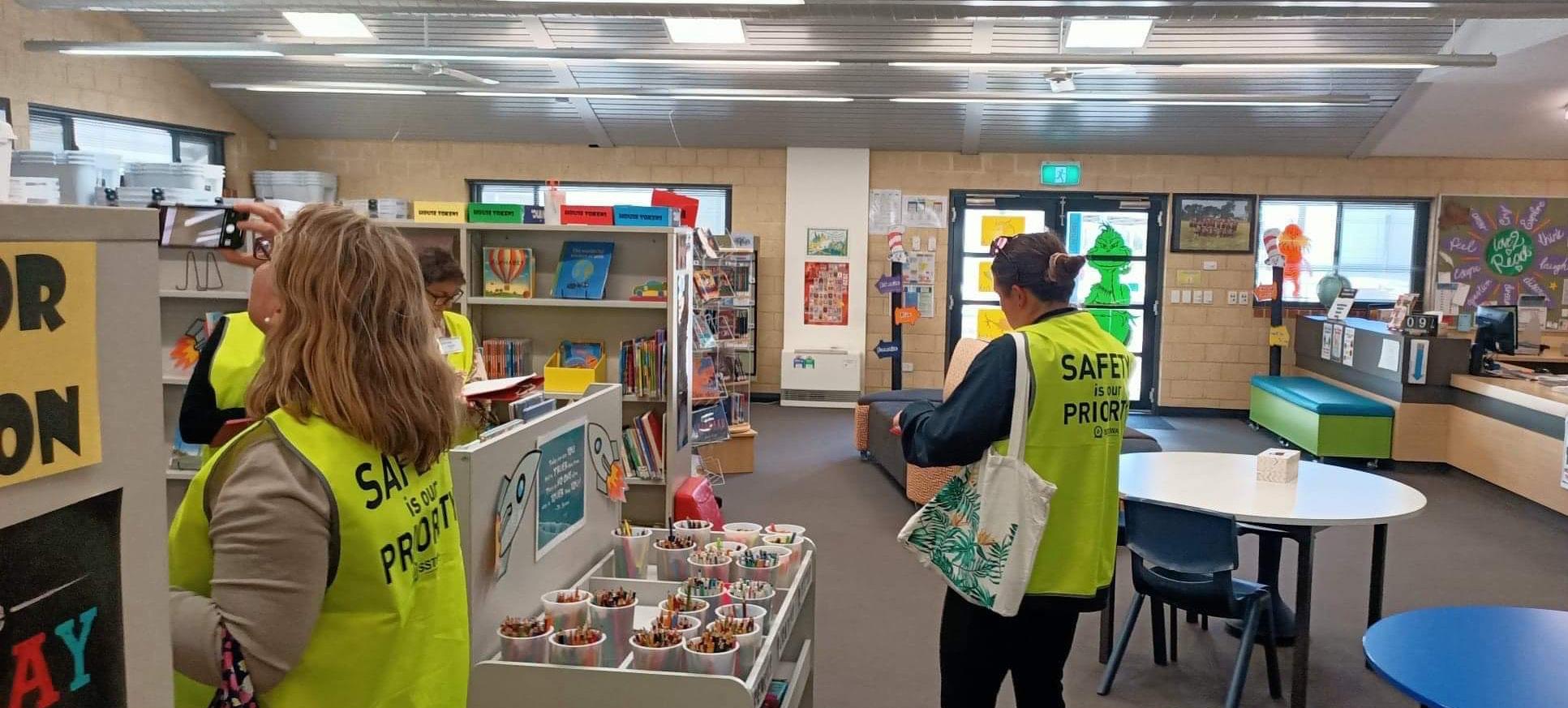
To be able to carry out their full range of powers and functions, HSRs are required to complete a five-day initial training course through a provider that has been approved by the Work Health and Safety Commission.
The cost of this training should be covered by the PCBU, and the HSR is entitled to their usual pay while they attend the course. In the case of public
How many HSRs are in the average-sized school or TAFE?
How does an HSR undertake training?
Would a teacher’s HSR training differ to the training of someone in another industry?
Reception
For general enquiries and to speak with a particular staff member at the union office.
Your first point of contact for any individual issues: industrial rights, access to legal services and workers’ compensation matters.
Contact the team in membership for payment queries and to update your details including changes to contact info, work fraction and pay scale. You can also join the union and update your details online.
Offering you industrial and professional courses, conferences and forums to better understand your rights, further your career, and enhance your well-being.
(08) 9210 6000 | 1800 199 073 contact@sstuwa.org.au
(08) 9210 6060 | 1800 106 683 memberassist@sstuwa.org.au
(08) 9210 6000 membership@sstuwa.org.au sstuwa.org.au/join sstuwa.org.au/updatemydetails
(08) 9210 6035 training@sstuwa.org.au sstuwa.org.au/training
App and website support

Senior officers
Contact the Accounts Team for expense enquiries related to courses, worksite branches and unionrelated travel.

(08) 9210 6000 accounts@sstuwa.org.au
For technical support with app and website issues. sstuwa.org.au/contact
President Matt Jarman
Senior Vice President Natalie Blewitt
News
Member benefits
Vice President
Sharmila Nagar
General Secretary Mary Franklyn
Every school/college has a designated organiser to support union reps and members with managing school/branch matters. Organisers visit branches, attend meetings, provide information and advice and assist with dispute management, amongst many other activities.
Specialists are available to help with issues in areas including early childhood education, new educators, school leaders, TAFE, women and equity, and work health and safety.
Get the latest union news and updates via our website, app, eNews, Facebook, Instagram, Twitter and Western Teacher magazine.
Receive exclusive discounts and promotions on the things you use every day, including insurance, banking, educational resources and more.
(08) 9210 6000 contact@sstuwa.org.au
(08) 9210 6000 contact@sstuwa.org.au
(08) 9210 6060 memberassist@sstuwa.org.au
(08) 9210 6000 editor@sstuwa.org.au
(08) 9210 6000 sstuwa.org.au/benefits